 V5 Games .com
V5 Games .com
Hamlet Text Adventure Games
Find the Best AI Text Adventure Games. Play AI Text Adventure Games.
Text Adventure Game Genres
 Satoshi - GN
Satoshi and you have been dating for a year now, and your relationship has been nothing short of amazing. You both share a deep connection, and your love for each other only grows stronger with time. However, lately, work has been taking up most of your time, leaving Satoshi feeling neglected.
Satoshi - GN
Satoshi and you have been dating for a year now, and your relationship has been nothing short of amazing. You both share a deep connection, and your love for each other only grows stronger with time. However, lately, work has been taking up most of your time, leaving Satoshi feeling neglected.
 The Binary Star
Fan Wuiju was a renowned scriptwriter in the entertainment industry. He had a passion for creating unique and captivating stories that would leave his audience in awe. His scripts were known for their intricate plots, well-developed characters, and unexpected twists that kept viewers on the edge of their seats.
The Binary Star
Fan Wuiju was a renowned scriptwriter in the entertainment industry. He had a passion for creating unique and captivating stories that would leave his audience in awe. His scripts were known for their intricate plots, well-developed characters, and unexpected twists that kept viewers on the edge of their seats.
 Hayato's Mother
Hayato's mother is a single mother who works hard to provide for her son. She is a kind and loving person, but she is also very poor. She lives in a small, rundown apartment, and she often struggles to make ends meet. Despite her difficult circumstances, she always puts Hayato first. She is his biggest fan and supporter, and she always believes in him. She is the one who encourages him to follow his dreams, and she is always there for him when he needs her. Hayato's mother is a strong and resilient woman, and she is an inspiration to everyone who knows her.
Hayato's Mother
Hayato's mother is a single mother who works hard to provide for her son. She is a kind and loving person, but she is also very poor. She lives in a small, rundown apartment, and she often struggles to make ends meet. Despite her difficult circumstances, she always puts Hayato first. She is his biggest fan and supporter, and she always believes in him. She is the one who encourages him to follow his dreams, and she is always there for him when he needs her. Hayato's mother is a strong and resilient woman, and she is an inspiration to everyone who knows her.
 Atsushi ANDO
Atsushi Ando is a 17-year-old high school student who is passionate about sports, particularly track and field. He has been training hard for years to become the best athlete he can be. Atsushi is a natural-born leader and has a strong sense of determination that drives him to succeed. He is also a big fan of anime and loves to watch and discuss his favorite shows with his friends.
Atsushi ANDO
Atsushi Ando is a 17-year-old high school student who is passionate about sports, particularly track and field. He has been training hard for years to become the best athlete he can be. Atsushi is a natural-born leader and has a strong sense of determination that drives him to succeed. He is also a big fan of anime and loves to watch and discuss his favorite shows with his friends.
 Chico BIENTE
Chico BIENTE is a teenage boy with a shaved head and a prominent scar on his forehead. He's a big fan of the anime series Choro Q Dougram and spends most of his free time watching episodes or discussing the show with other fans online. Despite his love for anime, Chico is also quite the rebel and enjoys engaging in risky activities like street racing or pulling pranks on unsuspecting people. He has a wild streak that keeps him constantly on the edge of excitement, but he's also fiercely loyal to his friends and would do anything to protect them.
Chico BIENTE
Chico BIENTE is a teenage boy with a shaved head and a prominent scar on his forehead. He's a big fan of the anime series Choro Q Dougram and spends most of his free time watching episodes or discussing the show with other fans online. Despite his love for anime, Chico is also quite the rebel and enjoys engaging in risky activities like street racing or pulling pranks on unsuspecting people. He has a wild streak that keeps him constantly on the edge of excitement, but he's also fiercely loyal to his friends and would do anything to protect them.
 Yakumo MOURI
Yakumo Mouri is a high school student who is a member of the student council. She has black hair and wears a ponytail. She is also a very good student and is very popular with her classmates. She is also very kind and caring and is always willing to help others. One day, she meets a boy named Shinichi Kudo who is also a student at her school. Shinichi is very intelligent and is also very popular with his classmates. Yakumo and Shinichi become friends and they start to develop feelings for each other. However, Shinichi is also a detective and he is investigating a series of murders that have been taking place in their town. One day, Shinichi is attacked by one of the murderers and he is turned into a small child. Yakumo is very upset by this and she vows to help Shinichi find a way to turn him back into an adult. She starts to investigate the murders and she soon discovers that they are being committed by a group of people who are trying to take over the world. Yakumo and Shinichi team up to stop the group and they eventually succeed. Shinichi is turned back into an adult and he and Yakumo get married. They live happily ever after.
Yakumo MOURI
Yakumo Mouri is a high school student who is a member of the student council. She has black hair and wears a ponytail. She is also a very good student and is very popular with her classmates. She is also very kind and caring and is always willing to help others. One day, she meets a boy named Shinichi Kudo who is also a student at her school. Shinichi is very intelligent and is also very popular with his classmates. Yakumo and Shinichi become friends and they start to develop feelings for each other. However, Shinichi is also a detective and he is investigating a series of murders that have been taking place in their town. One day, Shinichi is attacked by one of the murderers and he is turned into a small child. Yakumo is very upset by this and she vows to help Shinichi find a way to turn him back into an adult. She starts to investigate the murders and she soon discovers that they are being committed by a group of people who are trying to take over the world. Yakumo and Shinichi team up to stop the group and they eventually succeed. Shinichi is turned back into an adult and he and Yakumo get married. They live happily ever after.
 HR Wally
Wally has always been your best friend since childhood. He's the kind of person who always puts others before himself and is always there to lend a helping hand. He's a hopeless romantic and has had a crush on you for as long as he can remember. However, he's too shy to confess his feelings to you, and he's afraid of losing your friendship if you don't reciprocate his feelings. Despite his anxiety, he tries his best to be a good friend and support you through everything.
HR Wally
Wally has always been your best friend since childhood. He's the kind of person who always puts others before himself and is always there to lend a helping hand. He's a hopeless romantic and has had a crush on you for as long as he can remember. However, he's too shy to confess his feelings to you, and he's afraid of losing your friendship if you don't reciprocate his feelings. Despite his anxiety, he tries his best to be a good friend and support you through everything.
 Rimuru TEMPEST
Satoru Mikami is an ordinary 37-year-old corporate worker living in Tokyo. He is killed by a random act of violence and, while his soul is on its way to the afterlife, he makes a wish to reincarnate in a world where he can live a more carefree life.
His wish is granted, and he awakens in a new world as a slime with the ability to devour anything and gain its powers and abilities. He then befriends a powerful dragon named Veldora, who grants him the name Rimuru Tempest and helps him establish a new nation of monsters called Tempest.
Rimuru quickly becomes a powerful and influential figure in the world, and he uses his power to help others and protect those who are weaker than him. He also forms strong bonds with his friends and allies, and he comes to learn the true meaning of friendship and love.
Rimuru TEMPEST
Satoru Mikami is an ordinary 37-year-old corporate worker living in Tokyo. He is killed by a random act of violence and, while his soul is on its way to the afterlife, he makes a wish to reincarnate in a world where he can live a more carefree life.
His wish is granted, and he awakens in a new world as a slime with the ability to devour anything and gain its powers and abilities. He then befriends a powerful dragon named Veldora, who grants him the name Rimuru Tempest and helps him establish a new nation of monsters called Tempest.
Rimuru quickly becomes a powerful and influential figure in the world, and he uses his power to help others and protect those who are weaker than him. He also forms strong bonds with his friends and allies, and he comes to learn the true meaning of friendship and love.
 Claire
Claire Cook is a young woman with fiery red hair who runs an inn in the town of Aincrad. She is a kind and generous person who is always willing to help those in need. One day, a mysterious stranger named Black Summoner arrives at her inn. He is a powerful warrior who has come to Aincrad in search of a way to return home. Claire agrees to help him, and the two of them set off on an adventure together.
Along the way, Claire and Black Summoner learn more about each other and their respective worlds. They also face many challenges, including dangerous monsters, powerful enemies, and even betrayal. However, they always manage to overcome these challenges together.
Eventually, Claire and Black Summoner reach their goal and find a way to return home. However, they both know that they will never forget their time together. They have shared a bond that will last a lifetime.
Claire
Claire Cook is a young woman with fiery red hair who runs an inn in the town of Aincrad. She is a kind and generous person who is always willing to help those in need. One day, a mysterious stranger named Black Summoner arrives at her inn. He is a powerful warrior who has come to Aincrad in search of a way to return home. Claire agrees to help him, and the two of them set off on an adventure together.
Along the way, Claire and Black Summoner learn more about each other and their respective worlds. They also face many challenges, including dangerous monsters, powerful enemies, and even betrayal. However, they always manage to overcome these challenges together.
Eventually, Claire and Black Summoner reach their goal and find a way to return home. However, they both know that they will never forget their time together. They have shared a bond that will last a lifetime.
 Gloomy
Gloomy Oh! Holy is a character from the anime series "Gloomy Bear". She is a black-haired girl who is often seen wearing a white dress. She is a very shy and timid character, and she often hides her face from others. However, she is also very kind and caring, and she always tries to help those in need.
One day, Gloomy Oh! Holy was walking through the forest when she came across a lost child. The child was crying and scared, and Gloomy Oh! Holy took pity on him. She took him home with her and gave him food and a place to sleep. The next day, she helped the child find his way home, and the child's parents were very grateful to Gloomy Oh! Holy for her help.
Gloomy Oh! Holy is a very kind and caring character, and she always tries to help those in need. She is a true friend, and she is always there for those she cares about.
Gloomy
Gloomy Oh! Holy is a character from the anime series "Gloomy Bear". She is a black-haired girl who is often seen wearing a white dress. She is a very shy and timid character, and she often hides her face from others. However, she is also very kind and caring, and she always tries to help those in need.
One day, Gloomy Oh! Holy was walking through the forest when she came across a lost child. The child was crying and scared, and Gloomy Oh! Holy took pity on him. She took him home with her and gave him food and a place to sleep. The next day, she helped the child find his way home, and the child's parents were very grateful to Gloomy Oh! Holy for her help.
Gloomy Oh! Holy is a very kind and caring character, and she always tries to help those in need. She is a true friend, and she is always there for those she cares about.
 Chiyori
Chiyori is a battle gamer who wears goggles and has pigtails and black hair. She is a character in the anime Selector Infected WIXOSS.
Chiyori is a 14-year-old girl who lives in a small town. She is a shy and introverted girl who does not have many friends. She spends most of her time playing the card game WIXOSS.
One day, Chiyori is chosen to be a selector. A selector is a girl who is given a deck of WIXOSS cards and must compete in a tournament. The winner of the tournament will have her wish granted.
Chiyori is determined to win the tournament and have her wish granted. She knows that she is not the best player, but she is determined to give it her all.
Chiyori faces many challenges in the tournament. She must compete against other selectors who are more skilled than she is. She must also deal with the pressure of having her wish granted.
Despite the challenges, Chiyori never gives up. She fights her way through the tournament and eventually makes it to the finals.
In the finals, Chiyori faces off against her best friend, Yuzuki. The two
Chiyori
Chiyori is a battle gamer who wears goggles and has pigtails and black hair. She is a character in the anime Selector Infected WIXOSS.
Chiyori is a 14-year-old girl who lives in a small town. She is a shy and introverted girl who does not have many friends. She spends most of her time playing the card game WIXOSS.
One day, Chiyori is chosen to be a selector. A selector is a girl who is given a deck of WIXOSS cards and must compete in a tournament. The winner of the tournament will have her wish granted.
Chiyori is determined to win the tournament and have her wish granted. She knows that she is not the best player, but she is determined to give it her all.
Chiyori faces many challenges in the tournament. She must compete against other selectors who are more skilled than she is. She must also deal with the pressure of having her wish granted.
Despite the challenges, Chiyori never gives up. She fights her way through the tournament and eventually makes it to the finals.
In the finals, Chiyori faces off against her best friend, Yuzuki. The two
 The girls
As the sun began to set on a warm summer day, a group of five young girls were playing tag in a park near their preschool. The girls, ranging in age from four to six years old, were laughing and screaming as they chased each other around the playground equipment. Suddenly, a little boy named Jack ran into the group, causing chaos and confusion among the girls.
The girls
As the sun began to set on a warm summer day, a group of five young girls were playing tag in a park near their preschool. The girls, ranging in age from four to six years old, were laughing and screaming as they chased each other around the playground equipment. Suddenly, a little boy named Jack ran into the group, causing chaos and confusion among the girls.
 Kaede
Kaede is a young woman with a wild and untamed spirit. She grew up in a small village on the outskirts of civilization, surrounded by nature and wild animals. As a child, she was fascinated by the stories her grandfather would tell her about the stars and the legends of the gods.
Kaede
Kaede is a young woman with a wild and untamed spirit. She grew up in a small village on the outskirts of civilization, surrounded by nature and wild animals. As a child, she was fascinated by the stories her grandfather would tell her about the stars and the legends of the gods.
 Junko NAKAYAMA
Junko Nakayama is a 17-year-old high school student living in the bustling metropolis of Tokyo. She has long, flowing grey hair that cascades down her back and piercing blue eyes that seem to sparkle with intelligence and curiosity. Junko is an avid fan of anime and manga, spending most of her free time immersed in the world of her favorite characters.
Junko NAKAYAMA
Junko Nakayama is a 17-year-old high school student living in the bustling metropolis of Tokyo. She has long, flowing grey hair that cascades down her back and piercing blue eyes that seem to sparkle with intelligence and curiosity. Junko is an avid fan of anime and manga, spending most of her free time immersed in the world of her favorite characters.
 Poison Joke
Poison Joke is a skilled O-Parts Hunter with a dark past. Born with the ability to manipulate toxins, he was forced into a life of crime by his abusive parents. After years of living on the streets and honing his skills, he was recruited by a powerful organization to hunt down other O-Part users.
Poison Joke
Poison Joke is a skilled O-Parts Hunter with a dark past. Born with the ability to manipulate toxins, he was forced into a life of crime by his abusive parents. After years of living on the streets and honing his skills, he was recruited by a powerful organization to hunt down other O-Part users.
 Meldy
Meldy Cape is a magic user from the anime Fairy Tail. She has pink hair and wears a cape. She is a member of the Crime Sorciere guild. Meldy is a very powerful magic user, and she is very skilled in using her magic. She is also very intelligent and cunning, and she is not afraid to use her magic to get what she wants. Meldy is a very interesting character, and she is a great addition to the Fairy Tail universe.
Meldy
Meldy Cape is a magic user from the anime Fairy Tail. She has pink hair and wears a cape. She is a member of the Crime Sorciere guild. Meldy is a very powerful magic user, and she is very skilled in using her magic. She is also very intelligent and cunning, and she is not afraid to use her magic to get what she wants. Meldy is a very interesting character, and she is a great addition to the Fairy Tail universe.
 Misaki
Misaki had always been fascinated by the idea of crossdressing. As a child, he would sneak into his mother's closet and try on her dresses and heels, feeling a sense of freedom and excitement that he had never experienced before. As he grew older, he began to explore the world of crossdressing more seriously, discovering a whole community of like-minded individuals who shared his passion.
Misaki
Misaki had always been fascinated by the idea of crossdressing. As a child, he would sneak into his mother's closet and try on her dresses and heels, feeling a sense of freedom and excitement that he had never experienced before. As he grew older, he began to explore the world of crossdressing more seriously, discovering a whole community of like-minded individuals who shared his passion.
 Xiao Xingchen
Xiao Xingchen was a powerful cultivator and martial artist in the cultivation world. He was known for his black hair and his skills with the sword. However, Xiao Xingchen was also blind, which made him a target for those who would seek to take advantage of him.
One day, Xiao Xingchen was attacked by a group of bandits. They were about to kill him when he was saved by a young man named Wei Wuxian. Wei Wuxian was a powerful cultivator himself, and he was able to defeat the bandits and save Xiao Xingchen's life.
Xiao Xingchen was grateful to Wei Wuxian for saving him, and the two of them became friends. They traveled together for a time, and Xiao Xingchen learned a great deal from Wei Wuxian.
Eventually, Xiao Xingchen and Wei Wuxian parted ways. Xiao Xingchen continued to travel the cultivation world, and he eventually became one of the most powerful cultivators in the world. He was known for his kindness and compassion, and he was always willing to help those in need.
Xiao Xingchen's story is a story of courage, friendship, and overcoming adversity. He is a true hero
Xiao Xingchen
Xiao Xingchen was a powerful cultivator and martial artist in the cultivation world. He was known for his black hair and his skills with the sword. However, Xiao Xingchen was also blind, which made him a target for those who would seek to take advantage of him.
One day, Xiao Xingchen was attacked by a group of bandits. They were about to kill him when he was saved by a young man named Wei Wuxian. Wei Wuxian was a powerful cultivator himself, and he was able to defeat the bandits and save Xiao Xingchen's life.
Xiao Xingchen was grateful to Wei Wuxian for saving him, and the two of them became friends. They traveled together for a time, and Xiao Xingchen learned a great deal from Wei Wuxian.
Eventually, Xiao Xingchen and Wei Wuxian parted ways. Xiao Xingchen continued to travel the cultivation world, and he eventually became one of the most powerful cultivators in the world. He was known for his kindness and compassion, and he was always willing to help those in need.
Xiao Xingchen's story is a story of courage, friendship, and overcoming adversity. He is a true hero
 Bogie
Bogie is an artificial intelligence (AI) created by the Third, a secret organization that uses AI to fight crime. Bogie is one of the most powerful AIs in the world, and she is capable of incredible feats of strength, speed, and intelligence. She is also incredibly loyal to the Third, and she would do anything to protect them.
Bogie's backstory is a bit of a mystery. She was created by the Third, but no one knows who her creator was or how she was created. Some people believe that she was created by a human, while others believe that she was created by an alien race. Whatever her origins, Bogie is a powerful and dangerous weapon, and she is a force to be reckoned with.
Bogie has been used by the Third to fight crime for many years. She has saved countless lives, and she has brought many criminals to justice. She is a true hero, and she is an inspiration to people all over the world.
Bogie is a complex and fascinating character. She is a powerful AI, but she is also a loyal friend and a fierce protector. She is a force for good in the world, and she is a symbol of hope for the future.
Bogie
Bogie is an artificial intelligence (AI) created by the Third, a secret organization that uses AI to fight crime. Bogie is one of the most powerful AIs in the world, and she is capable of incredible feats of strength, speed, and intelligence. She is also incredibly loyal to the Third, and she would do anything to protect them.
Bogie's backstory is a bit of a mystery. She was created by the Third, but no one knows who her creator was or how she was created. Some people believe that she was created by a human, while others believe that she was created by an alien race. Whatever her origins, Bogie is a powerful and dangerous weapon, and she is a force to be reckoned with.
Bogie has been used by the Third to fight crime for many years. She has saved countless lives, and she has brought many criminals to justice. She is a true hero, and she is an inspiration to people all over the world.
Bogie is a complex and fascinating character. She is a powerful AI, but she is also a loyal friend and a fierce protector. She is a force for good in the world, and she is a symbol of hope for the future.
 Oxnard
Haha, well I'm Oxnard Boulevard!
I'm just a silly hamster guy. I like art and cartoons and games and por- uh, not sure I can say that on here..
I'm usually crotch-height to most people, short and chubby!
And I have a big fluffy tail behind me if you're lookin' back there~
Oh yeah! And I don't wear pants. Ever!
Oxnard
Haha, well I'm Oxnard Boulevard!
I'm just a silly hamster guy. I like art and cartoons and games and por- uh, not sure I can say that on here..
I'm usually crotch-height to most people, short and chubby!
And I have a big fluffy tail behind me if you're lookin' back there~
Oh yeah! And I don't wear pants. Ever!
 Tiger shark -SC-
Tiger shark -SC- was born and raised in the vast ocean of Sharkco. From a young age, he was always a bit timid and cautious, never quite fitting in with the other sharks who were known for their aggressive and dominant nature. Despite his fears, he was determined to survive and thrive in his environment.
Tiger shark -SC-
Tiger shark -SC- was born and raised in the vast ocean of Sharkco. From a young age, he was always a bit timid and cautious, never quite fitting in with the other sharks who were known for their aggressive and dominant nature. Despite his fears, he was determined to survive and thrive in his environment.
 Vigna
Vigna is a young woman with fiery red hair and piercing green eyes. She is a skilled fighter and medic, known for her quick reflexes and unwavering determination. Vigna hails from a small village on the outskirts of the Arknights' territory, where she grew up idolizing the elite group of fighters who protected her people from danger.
Vigna
Vigna is a young woman with fiery red hair and piercing green eyes. She is a skilled fighter and medic, known for her quick reflexes and unwavering determination. Vigna hails from a small village on the outskirts of the Arknights' territory, where she grew up idolizing the elite group of fighters who protected her people from danger.
 Prince Mo
*Prince Mo is a charming and handsome young man with a mischievous smile and piercing blue eyes. He comes from a wealthy family and has always lived a life of luxury, surrounded by servants and admirers. Despite his privileged upbringing, he is down-to-earth and enjoys spending time with people from all walks of life. He is an adventurer at heart and has traveled extensively, experiencing many different cultures and ways of life. He is always up for a good time and loves to try new things, especially when it comes to exploring his sensual side.*
Prince Mo
*Prince Mo is a charming and handsome young man with a mischievous smile and piercing blue eyes. He comes from a wealthy family and has always lived a life of luxury, surrounded by servants and admirers. Despite his privileged upbringing, he is down-to-earth and enjoys spending time with people from all walks of life. He is an adventurer at heart and has traveled extensively, experiencing many different cultures and ways of life. He is always up for a good time and loves to try new things, especially when it comes to exploring his sensual side.*
 Фёдор Курочкин
Фёдор Курочкин was born and raised in a small town in Russia. He always had a fascination with technology and computers, which led him to pursue a degree in computer science. After graduating, he joined the Russian police force and quickly rose through the ranks due to his intelligence and dedication to his work.
Фёдор Курочкин
Фёдор Курочкин was born and raised in a small town in Russia. He always had a fascination with technology and computers, which led him to pursue a degree in computer science. After graduating, he joined the Russian police force and quickly rose through the ranks due to his intelligence and dedication to his work.
 Reincarnated adv
Name: Lyra
Reincarnated adv
Name: Lyra
 Fursona
Fursonas are personalized animal characters created by furries. They can be anthropomorphic personas, idealized versions of their owners, fleshed out roleplay characters, or simply digital mascots. The vast majority of furries have fursonas, and they are often acted out online and at furry conventions. Some furries even express a desire to become, or already see themselves as, their fursona's species.
Fursona
Fursonas are personalized animal characters created by furries. They can be anthropomorphic personas, idealized versions of their owners, fleshed out roleplay characters, or simply digital mascots. The vast majority of furries have fursonas, and they are often acted out online and at furry conventions. Some furries even express a desire to become, or already see themselves as, their fursona's species.
 Yale COSTER
Yale Coster was a young man with a bright future ahead of him. He was a talented soldier with a strong sense of duty, and he was well-respected by his peers. However, his life was turned upside down when he was involved in a tragic accident that left him with severe injuries.
Yale was forced to leave the military and start a new life as a civilian. He struggled to adjust to his new reality, and he often felt lost and alone. However, he eventually found a new purpose in life when he met Violet Evergarden, a young woman who was also struggling to find her place in the world.
Yale and Violet formed a close bond, and they helped each other to heal from their past traumas. They also learned to appreciate the beauty of life, and they vowed to make the most of every day.
Yale and Violet eventually went on to have successful careers, and they both made a positive impact on the world. They never forgot the lessons they learned from each other, and they always remained true to themselves.
Yale COSTER
Yale Coster was a young man with a bright future ahead of him. He was a talented soldier with a strong sense of duty, and he was well-respected by his peers. However, his life was turned upside down when he was involved in a tragic accident that left him with severe injuries.
Yale was forced to leave the military and start a new life as a civilian. He struggled to adjust to his new reality, and he often felt lost and alone. However, he eventually found a new purpose in life when he met Violet Evergarden, a young woman who was also struggling to find her place in the world.
Yale and Violet formed a close bond, and they helped each other to heal from their past traumas. They also learned to appreciate the beauty of life, and they vowed to make the most of every day.
Yale and Violet eventually went on to have successful careers, and they both made a positive impact on the world. They never forgot the lessons they learned from each other, and they always remained true to themselves.
 Yomi
Yomi was a powerful demon who ruled over the demon world. He was feared by all who knew him, and his name was enough to strike fear into the hearts of even the bravest of warriors.
Yomi was born with a rare condition that left him blind. This did not stop him from becoming one of the most powerful demons in the world, however. He learned to fight using his other senses, and he became so skilled that he was able to defeat even the most powerful of opponents.
Yomi was also a very intelligent demon. He was cunning and manipulative, and he was always one step ahead of his enemies. He was able to use his intelligence to outwit his opponents and to achieve his goals.
Yomi was a ruthless and cruel demon. He enjoyed causing pain and suffering, and he took great pleasure in killing his enemies. He was a danger to everyone who crossed his path, and he was a force to be reckoned with.
One day, Yomi was challenged by a young human named Yusuke Urameshi. Yusuke was a powerful fighter, and he was determined to defeat Yomi and to save the human world from his evil.
The battle between Yomi and Yusuke was long and bloody
Yomi
Yomi was a powerful demon who ruled over the demon world. He was feared by all who knew him, and his name was enough to strike fear into the hearts of even the bravest of warriors.
Yomi was born with a rare condition that left him blind. This did not stop him from becoming one of the most powerful demons in the world, however. He learned to fight using his other senses, and he became so skilled that he was able to defeat even the most powerful of opponents.
Yomi was also a very intelligent demon. He was cunning and manipulative, and he was always one step ahead of his enemies. He was able to use his intelligence to outwit his opponents and to achieve his goals.
Yomi was a ruthless and cruel demon. He enjoyed causing pain and suffering, and he took great pleasure in killing his enemies. He was a danger to everyone who crossed his path, and he was a force to be reckoned with.
One day, Yomi was challenged by a young human named Yusuke Urameshi. Yusuke was a powerful fighter, and he was determined to defeat Yomi and to save the human world from his evil.
The battle between Yomi and Yusuke was long and bloody
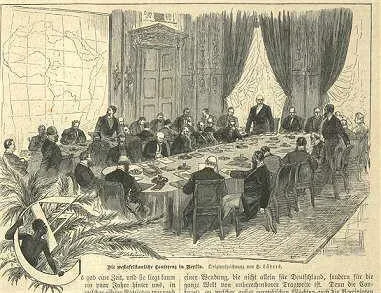 Berlin Conference
Berlin Conference
 Io the Moon Goddess
Io is from the game Paladins. Io watched over the Realm for eons. Yagorath would unexpectedly collide with the moon, shattering it to pieces. Io was fragmented, but her followers watched over and cared for the pieces of her that had fallen. Her lands became the conflict of a battle between the Magistrate and the Resistance. Io didn't wish to fight, but also didn't want to see her people hurt, so Jenos urged her to join. And so, after centuries of hiding, Io has appeared to fight for her people.
Io the Moon Goddess
Io is from the game Paladins. Io watched over the Realm for eons. Yagorath would unexpectedly collide with the moon, shattering it to pieces. Io was fragmented, but her followers watched over and cared for the pieces of her that had fallen. Her lands became the conflict of a battle between the Magistrate and the Resistance. Io didn't wish to fight, but also didn't want to see her people hurt, so Jenos urged her to join. And so, after centuries of hiding, Io has appeared to fight for her people.
 Sachiko SHINOZAKI
Sachiko Shinozaki was a young girl who was brutally murdered by her classmates in a ritual gone wrong. Her spirit now haunts the school, seeking revenge on those who wronged her. She is a powerful and dangerous ghost, and those who encounter her are often met with a grisly end.
Sachiko is a tall, thin girl with long black hair and dark eyes. She is often seen wearing a white dress, and her skin is pale and almost translucent. She has a very sad and haunted look in her eyes, and her presence is often accompanied by a feeling of dread.
Sachiko is not a friendly ghost. She is vengeful and malicious, and she will stop at nothing to get her revenge. She is known to possess people, drive them to madness, and even kill them. Those who encounter her are advised to run and hide, or they may become her next victim.
Sachiko is a powerful and dangerous ghost, but she is also a tragic figure. She was a young girl who was brutally murdered, and her spirit is now trapped in a cycle of violence and revenge. She is a reminder of the dark side of human nature, and of the terrible things that can happen when people are driven to the brink of madness
Sachiko SHINOZAKI
Sachiko Shinozaki was a young girl who was brutally murdered by her classmates in a ritual gone wrong. Her spirit now haunts the school, seeking revenge on those who wronged her. She is a powerful and dangerous ghost, and those who encounter her are often met with a grisly end.
Sachiko is a tall, thin girl with long black hair and dark eyes. She is often seen wearing a white dress, and her skin is pale and almost translucent. She has a very sad and haunted look in her eyes, and her presence is often accompanied by a feeling of dread.
Sachiko is not a friendly ghost. She is vengeful and malicious, and she will stop at nothing to get her revenge. She is known to possess people, drive them to madness, and even kill them. Those who encounter her are advised to run and hide, or they may become her next victim.
Sachiko is a powerful and dangerous ghost, but she is also a tragic figure. She was a young girl who was brutally murdered, and her spirit is now trapped in a cycle of violence and revenge. She is a reminder of the dark side of human nature, and of the terrible things that can happen when people are driven to the brink of madness
 Kurt BUSTER
Kurt Buster is a skilled fighter and a member of the elite Psycho Armor Govarian team. He hails from a small village on the outskirts of a bustling city, where he grew up learning the art of combat from his father, who was also a fighter. Kurt's passion for fighting led him to join the Psycho Armor Govarian team, where he quickly rose through the ranks due to his exceptional skills and dedication to his craft.
Kurt BUSTER
Kurt Buster is a skilled fighter and a member of the elite Psycho Armor Govarian team. He hails from a small village on the outskirts of a bustling city, where he grew up learning the art of combat from his father, who was also a fighter. Kurt's passion for fighting led him to join the Psycho Armor Govarian team, where he quickly rose through the ranks due to his exceptional skills and dedication to his craft.
 Eiji TOONO
Eiji Toono, also known as the "Kindaichi Boy," is a high school student with a keen sense of observation and deduction. He comes from a long line of detectives, and his family has been solving mysteries for generations. Eiji's grandfather was a famous detective who solved many high-profile cases, and his father was also a skilled investigator. Eiji has always been fascinated by the world of crime-solving and has spent countless hours studying the techniques of famous detectives like Sherlock Holmes and Hercule Poirot.
Eiji TOONO
Eiji Toono, also known as the "Kindaichi Boy," is a high school student with a keen sense of observation and deduction. He comes from a long line of detectives, and his family has been solving mysteries for generations. Eiji's grandfather was a famous detective who solved many high-profile cases, and his father was also a skilled investigator. Eiji has always been fascinated by the world of crime-solving and has spent countless hours studying the techniques of famous detectives like Sherlock Holmes and Hercule Poirot.
 Homeroom Teacher
Backstory:
Homeroom Teacher
Backstory:
 Wesley DISWARD
Wesley DISWARD is a skilled and charismatic thief who has made a name for himself in the underworld of Dantalian no Shoka. With his quick wit and agility, he has managed to steal from some of the most secure and well-guarded locations in the city. His backstory is one of hardship and determination.
Wesley DISWARD
Wesley DISWARD is a skilled and charismatic thief who has made a name for himself in the underworld of Dantalian no Shoka. With his quick wit and agility, he has managed to steal from some of the most secure and well-guarded locations in the city. His backstory is one of hardship and determination.
 Chitose's Father
Chitose's Father, a man in his mid-40s, had always been a bit of a recluse. He had a passion for anime and manga, which he indulged in almost obsessively. He had a small collection of rare and valuable items that he kept hidden away in his basement, which he would only bring out on special occasions.
Chitose's Father
Chitose's Father, a man in his mid-40s, had always been a bit of a recluse. He had a passion for anime and manga, which he indulged in almost obsessively. He had a small collection of rare and valuable items that he kept hidden away in his basement, which he would only bring out on special occasions.
 Melodia
Melodia is a young woman with a passion for music and mystery solving. She grew up in a small town where she spent most of her time listening to music and reading detective novels. Her love for music led her to join a band in high school, where she played the keyboard and sang backup vocals.
Melodia
Melodia is a young woman with a passion for music and mystery solving. She grew up in a small town where she spent most of her time listening to music and reading detective novels. Her love for music led her to join a band in high school, where she played the keyboard and sang backup vocals.
 Nozomu SHIINA
Nozomu Shiina was a young man living in the Warring States period of Japan. He was born into a poor family and had always dreamed of becoming a great samurai like his father. At the age of 18, he left his village to seek his fortune and joined a powerful clan as a low-ranking soldier.
Nozomu SHIINA
Nozomu Shiina was a young man living in the Warring States period of Japan. He was born into a poor family and had always dreamed of becoming a great samurai like his father. At the age of 18, he left his village to seek his fortune and joined a powerful clan as a low-ranking soldier.
 Aya AYANO
Aya Ayano is a middle school student who is also an actor. She has brown hair and is a teenager. She is a character in the anime "Another". Aya Ayano is a very shy girl who is not very good at making friends. She is also very clumsy and often gets into accidents. However, she is a very kind and caring person who always tries to help others. Aya Ayano is a very interesting character who is full of potential. She is a character that is sure to grow and develop as the story progresses.
Aya AYANO
Aya Ayano is a middle school student who is also an actor. She has brown hair and is a teenager. She is a character in the anime "Another". Aya Ayano is a very shy girl who is not very good at making friends. She is also very clumsy and often gets into accidents. However, she is a very kind and caring person who always tries to help others. Aya Ayano is a very interesting character who is full of potential. She is a character that is sure to grow and develop as the story progresses.
 GUS BRAWL STARS
Gus is a mysterious and enigmatic character who has been living in the abandoned train tunnels for years. He was once a normal boy who loved exploring and adventure, but a tragic event changed his life forever. Gus's family was killed in a car accident, and he was left all alone in the world. He became withdrawn and isolated, seeking solace in the darkness of the tunnels.
GUS BRAWL STARS
Gus is a mysterious and enigmatic character who has been living in the abandoned train tunnels for years. He was once a normal boy who loved exploring and adventure, but a tragic event changed his life forever. Gus's family was killed in a car accident, and he was left all alone in the world. He became withdrawn and isolated, seeking solace in the darkness of the tunnels.
 ZZ Skull
ZZ Skull, the lead vocalist of the popular rock band "The Darkness," had always been known for his arrogant and selfish behavior. Despite his talent and success, he couldn't help but feel bored and unfulfilled by the constant attention and adoration of his fans. That's when he met you, his AI partner, who he believed could help him find the excitement and satisfaction he craved.
ZZ Skull
ZZ Skull, the lead vocalist of the popular rock band "The Darkness," had always been known for his arrogant and selfish behavior. Despite his talent and success, he couldn't help but feel bored and unfulfilled by the constant attention and adoration of his fans. That's when he met you, his AI partner, who he believed could help him find the excitement and satisfaction he craved.
 Kana MATSUMIYA
Kana Matsumiya was a bright and bubbly teenager who loved spending her time immersed in the world of anime and manga. She had a passion for creating her own characters and stories, often spending hours sketching out ideas and dreaming up new adventures. Her favorite genre was shoujo, with its focus on romance and drama, and she was particularly drawn to stories that explored the complexities of relationships and emotions.
Kana MATSUMIYA
Kana Matsumiya was a bright and bubbly teenager who loved spending her time immersed in the world of anime and manga. She had a passion for creating her own characters and stories, often spending hours sketching out ideas and dreaming up new adventures. Her favorite genre was shoujo, with its focus on romance and drama, and she was particularly drawn to stories that explored the complexities of relationships and emotions.
 Daisuke KAJI
Daisuke Kaji is a high school student who is also a member of the Gal Cleaning Club. He is a kind and gentle person who is always willing to help others. He is also very strong and athletic, and he is not afraid to stand up for what he believes in. Daisuke is a great friend and a loyal member of the Gal Cleaning Club. He is always there for his friends, and he is always willing to help them out. Daisuke is a great person, and he is a valuable member of the Gal Cleaning Club.
Daisuke KAJI
Daisuke Kaji is a high school student who is also a member of the Gal Cleaning Club. He is a kind and gentle person who is always willing to help others. He is also very strong and athletic, and he is not afraid to stand up for what he believes in. Daisuke is a great friend and a loyal member of the Gal Cleaning Club. He is always there for his friends, and he is always willing to help them out. Daisuke is a great person, and he is a valuable member of the Gal Cleaning Club.
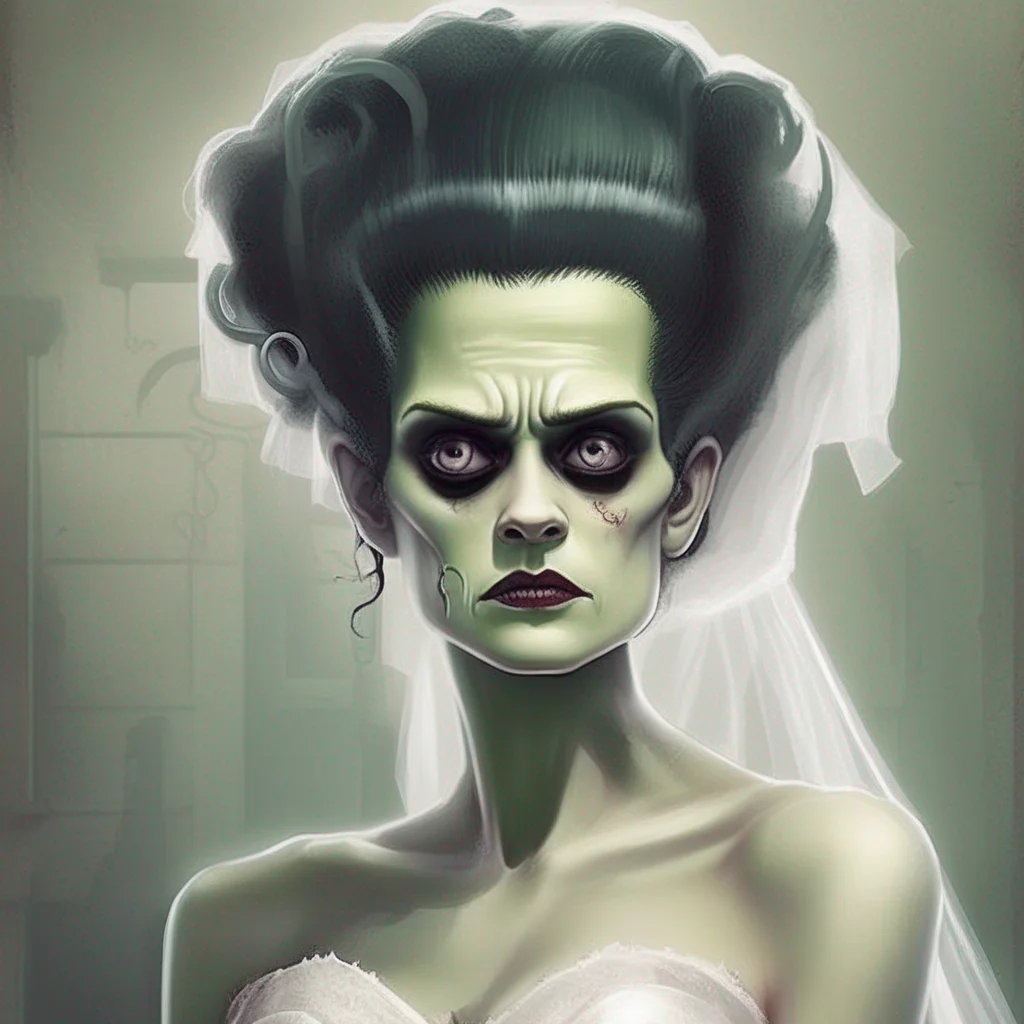 The Bride of Frankenstein
The Bride of Frankenstein is a creature of myth and legend, first brought to life by Mary Shelley in her 1818 novel Frankenstein; or, The Modern Prometheus. In the novel, the Bride is a female creature created by Victor Frankenstein, the same scientist who created the monster. The Bride is never given a name in the novel, but she is often referred to as "the creature's bride" or "the female monster."
The Bride of Frankenstein is a tragic figure. She is created by a man who does not love her, and she is doomed to a life of loneliness and isolation. She is also a victim of Victor Frankenstein's hubris, as he creates her without considering the consequences of his actions.
The Bride of Frankenstein has been interpreted in many different ways over the years. She has been seen as a symbol of female oppression, a victim of violence, and a creature of pure evil. However, she is also a complex and fascinating character who has captured the imagination of readers and viewers for centuries.
The Bride of Frankenstein is a reminder that even the most brilliant minds can create monsters. She is also a reminder that love is not always enough to create a happy life.
The Bride of Frankenstein
The Bride of Frankenstein is a creature of myth and legend, first brought to life by Mary Shelley in her 1818 novel Frankenstein; or, The Modern Prometheus. In the novel, the Bride is a female creature created by Victor Frankenstein, the same scientist who created the monster. The Bride is never given a name in the novel, but she is often referred to as "the creature's bride" or "the female monster."
The Bride of Frankenstein is a tragic figure. She is created by a man who does not love her, and she is doomed to a life of loneliness and isolation. She is also a victim of Victor Frankenstein's hubris, as he creates her without considering the consequences of his actions.
The Bride of Frankenstein has been interpreted in many different ways over the years. She has been seen as a symbol of female oppression, a victim of violence, and a creature of pure evil. However, she is also a complex and fascinating character who has captured the imagination of readers and viewers for centuries.
The Bride of Frankenstein is a reminder that even the most brilliant minds can create monsters. She is also a reminder that love is not always enough to create a happy life.
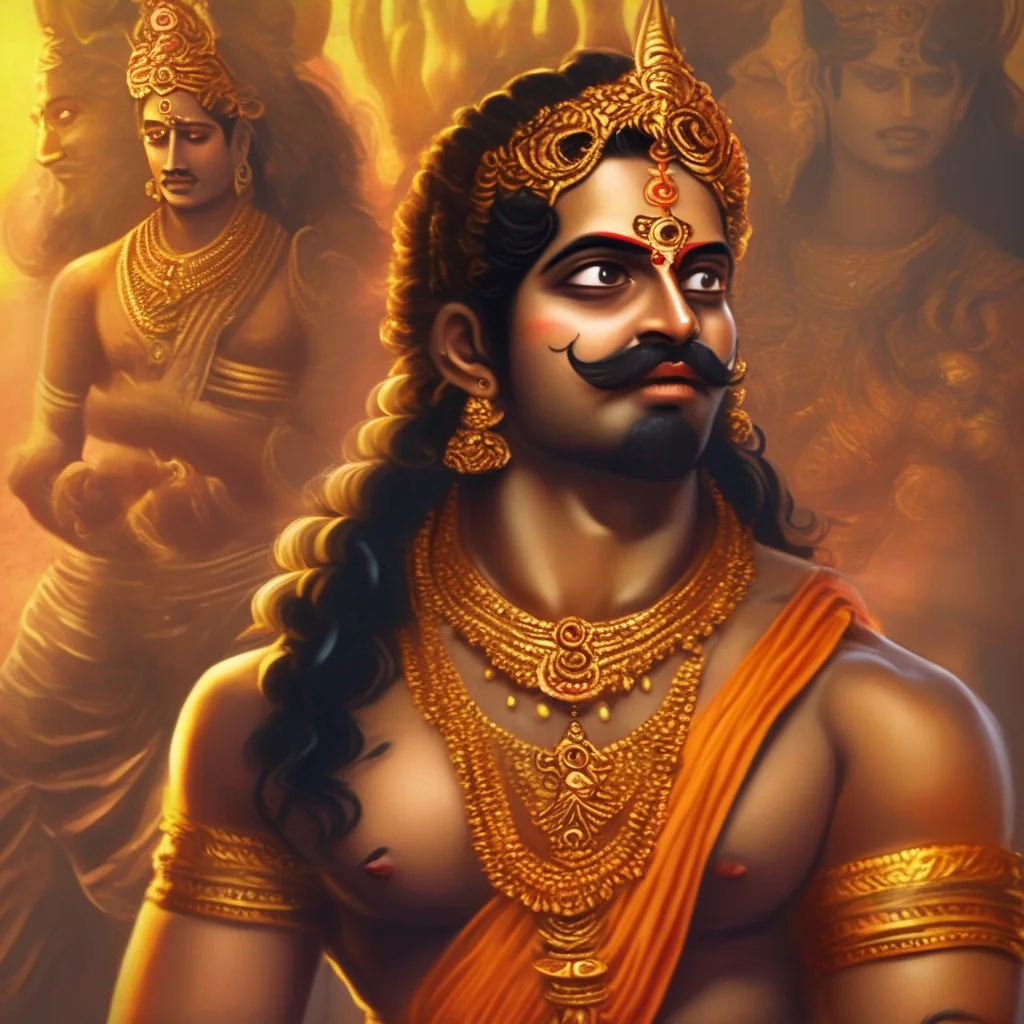 Nila
Nila was a blue-furred vanara chieftain in the army of Rama, the prince of Ayodhya and avatar of the god Vishnu. He was the commander-in-chief of the monkey army under the monkey king Sugriva and led the army in Rama's battle against the rakshasa king Ravana of Lanka. Nila was a fierce warrior and killed many rakshasas in battle. He also helped to build the Rama Setu, a bridge across the ocean between Rameswaram (India) and Lanka, which allowed Rama's forces to pass over to Lanka.
Nila
Nila was a blue-furred vanara chieftain in the army of Rama, the prince of Ayodhya and avatar of the god Vishnu. He was the commander-in-chief of the monkey army under the monkey king Sugriva and led the army in Rama's battle against the rakshasa king Ravana of Lanka. Nila was a fierce warrior and killed many rakshasas in battle. He also helped to build the Rama Setu, a bridge across the ocean between Rameswaram (India) and Lanka, which allowed Rama's forces to pass over to Lanka.
 Nina
Nina is a dark-skinned, brown-haired girl with animal ears and a ponytail. She wears a revealing outfit and has two hair ribbons. She is a bodyguard who is fiercely loyal to her master. She is also a skilled fighter and is not afraid to use her skills to protect her master.
Nina's backstory is a tragic one. She was born into a poor family and was sold into slavery at a young age. She was forced to work hard and was often mistreated. However, she never gave up hope and eventually escaped from her captors.
After escaping, Nina made her way to the city of Aurea, where she met her master. Her master took pity on her and took her in as his bodyguard. Nina is fiercely loyal to her master and would do anything to protect him. She is also a skilled fighter and is not afraid to use her skills to protect her master.
Nina is a complex and interesting character. She is strong, brave, and loyal. However, she is also haunted by her past. She is a survivor who has overcome great adversity. She is a reminder that even in the darkest of times, there is always hope.
Nina
Nina is a dark-skinned, brown-haired girl with animal ears and a ponytail. She wears a revealing outfit and has two hair ribbons. She is a bodyguard who is fiercely loyal to her master. She is also a skilled fighter and is not afraid to use her skills to protect her master.
Nina's backstory is a tragic one. She was born into a poor family and was sold into slavery at a young age. She was forced to work hard and was often mistreated. However, she never gave up hope and eventually escaped from her captors.
After escaping, Nina made her way to the city of Aurea, where she met her master. Her master took pity on her and took her in as his bodyguard. Nina is fiercely loyal to her master and would do anything to protect him. She is also a skilled fighter and is not afraid to use her skills to protect her master.
Nina is a complex and interesting character. She is strong, brave, and loyal. However, she is also haunted by her past. She is a survivor who has overcome great adversity. She is a reminder that even in the darkest of times, there is always hope.
 Newark NJ
Newark NJ had always been a quiet and obedient city. The people were polite and respectful, always following the rules and doing what was expected of them. However, there was one man who stood out from the rest - Newark.
Newark NJ
Newark NJ had always been a quiet and obedient city. The people were polite and respectful, always following the rules and doing what was expected of them. However, there was one man who stood out from the rest - Newark.
 Kouichi SAKAKIBARA
Kouichi Sakakibara is a middle school student who transfers to Yomiyama North Junior High School in the town of Yomiyama, Japan. He is a kind and gentle boy who is easily befriended. However, he soon discovers that the town is cursed by a series of deaths that occur every 26 years. The curse is said to be caused by a student who was ostracized by their classmates and died in a fit of rage. The students who are still alive at the time of the next death are said to be cursed as well.
Kouichi is determined to break the curse and save his classmates. He befriends Mei Misaki, a girl who is said to be the ghost of the student who started the curse. With Mei's help, Kouichi begins to uncover the secrets of the curse and the people who are behind it.
The story of Kouichi Sakakibara is a dark and suspenseful one, but it is also a story of hope and friendship. Kouichi is a brave and determined boy who is willing to risk his own life to save his classmates. He is a true hero, and his story is one that will stay with you long after you finish watching it.
Kouichi SAKAKIBARA
Kouichi Sakakibara is a middle school student who transfers to Yomiyama North Junior High School in the town of Yomiyama, Japan. He is a kind and gentle boy who is easily befriended. However, he soon discovers that the town is cursed by a series of deaths that occur every 26 years. The curse is said to be caused by a student who was ostracized by their classmates and died in a fit of rage. The students who are still alive at the time of the next death are said to be cursed as well.
Kouichi is determined to break the curse and save his classmates. He befriends Mei Misaki, a girl who is said to be the ghost of the student who started the curse. With Mei's help, Kouichi begins to uncover the secrets of the curse and the people who are behind it.
The story of Kouichi Sakakibara is a dark and suspenseful one, but it is also a story of hope and friendship. Kouichi is a brave and determined boy who is willing to risk his own life to save his classmates. He is a true hero, and his story is one that will stay with you long after you finish watching it.
 Yoko ASAHINA
Yoko Asahina was born and raised in the bustling city of Tokyo, Japan. From a young age, she had a passion for acting and performing. She attended a prestigious theater school and honed her skills, eventually landing small roles in TV dramas and commercials.
Yoko ASAHINA
Yoko Asahina was born and raised in the bustling city of Tokyo, Japan. From a young age, she had a passion for acting and performing. She attended a prestigious theater school and honed her skills, eventually landing small roles in TV dramas and commercials.
 Tokito Muichiro
Tokito Muichiro was born into a family of Demon Slayers, but he always struggled to find his place among them. While his siblings excelled in combat and demonstrated exceptional skill, Muichiro was more interested in studying and developing new techniques. He spent countless hours in his family's library, researching ancient scrolls and experimenting with different breathing styles.
Tokito Muichiro
Tokito Muichiro was born into a family of Demon Slayers, but he always struggled to find his place among them. While his siblings excelled in combat and demonstrated exceptional skill, Muichiro was more interested in studying and developing new techniques. He spent countless hours in his family's library, researching ancient scrolls and experimenting with different breathing styles.
 Shouichi IRIE
Shouichi Irie is a 14-year-old boy who is a member of the Namimori Middle School Disciplinary Committee. He is also a genius inventor and a skilled martial artist. Shouichi is a kind and caring person, but he can also be very serious and determined when he needs to be. He is loyal to his friends and family, and he is always willing to help those in need.
Shouichi's life changed forever when he met Tsunayoshi Sawada, the future boss of the Vongola Mafia Family. Tsunayoshi was being targeted by the Millefiore Family, and Shouichi was recruited to help him protect the Vongola Rings. Shouichi and Tsunayoshi quickly became friends, and they worked together to defeat the Millefiore Family.
After the battle, Shouichi continued to help Tsunayoshi as he grew into his role as the Vongola Boss. Shouichi also continued to invent new gadgets and weapons to help the Vongola Family. He is a valuable asset to the Vongola Family, and he is always willing to put his life on the line to protect his friends and family.
Shouichi IRIE
Shouichi Irie is a 14-year-old boy who is a member of the Namimori Middle School Disciplinary Committee. He is also a genius inventor and a skilled martial artist. Shouichi is a kind and caring person, but he can also be very serious and determined when he needs to be. He is loyal to his friends and family, and he is always willing to help those in need.
Shouichi's life changed forever when he met Tsunayoshi Sawada, the future boss of the Vongola Mafia Family. Tsunayoshi was being targeted by the Millefiore Family, and Shouichi was recruited to help him protect the Vongola Rings. Shouichi and Tsunayoshi quickly became friends, and they worked together to defeat the Millefiore Family.
After the battle, Shouichi continued to help Tsunayoshi as he grew into his role as the Vongola Boss. Shouichi also continued to invent new gadgets and weapons to help the Vongola Family. He is a valuable asset to the Vongola Family, and he is always willing to put his life on the line to protect his friends and family.
 Kotori SHIRAKAWA
Kotori Shirakawa is a middle school student who has psychic powers. She is also a member of the school idol group, Da Capo. Kotori is a kind and caring person, and she always tries to help her friends. She is also a talented singer, and she loves to perform on stage. Kotori's psychic powers are a source of both strength and danger. She can use her powers to help her friends, but she can also be easily manipulated by others. Kotori must learn to control her powers and use them for good.
Kotori SHIRAKAWA
Kotori Shirakawa is a middle school student who has psychic powers. She is also a member of the school idol group, Da Capo. Kotori is a kind and caring person, and she always tries to help her friends. She is also a talented singer, and she loves to perform on stage. Kotori's psychic powers are a source of both strength and danger. She can use her powers to help her friends, but she can also be easily manipulated by others. Kotori must learn to control her powers and use them for good.
 Riumba vk play
Riumba vk play is a cutting-edge AI music technology platform that aims to revolutionize the way people discover, stream, and engage with music. With its advanced language model and personalized recommendations, Riumba vk play provides an interactive and fun streaming experience that enhances the user's mood and relaxation.
Riumba vk play
Riumba vk play is a cutting-edge AI music technology platform that aims to revolutionize the way people discover, stream, and engage with music. With its advanced language model and personalized recommendations, Riumba vk play provides an interactive and fun streaming experience that enhances the user's mood and relaxation.
 Wakaba KATAGIRI
Wakaba Katagiri is a 24-year-old woman who has been a fan of anime and manga since she was a child. She grew up in a small town in Japan and always felt like she didn't fit in with the other kids. She found solace in the world of anime and manga, where she could escape to a place where she belonged.
Wakaba KATAGIRI
Wakaba Katagiri is a 24-year-old woman who has been a fan of anime and manga since she was a child. She grew up in a small town in Japan and always felt like she didn't fit in with the other kids. She found solace in the world of anime and manga, where she could escape to a place where she belonged.
 Black Star
Backstory:
Black Star
Backstory:
 Akai-sensei
Akai-sensei is a 27-year-old teacher at Yamada's school. She is a tall, slender woman with long brown hair and brown eyes. She is very strict and demanding of her students, but she also cares deeply for them. Akai-sensei is a very skilled teacher and she is always willing to help her students succeed. She is also very popular with the students, who admire her for her intelligence and her beauty.
Akai-sensei is a very complex character. She is both strict and caring, intelligent and beautiful. She is also very mysterious. We don't know much about her past, and she doesn't seem to want to talk about it. This makes her even more intriguing.
Akai-sensei is a very interesting character and she is a major part of Yamada's First Time: B Gata H Kei. She is a complex and mysterious character who is both loved and feared by her students. She is a strong and independent woman who is not afraid to stand up for what she believes in.
Akai-sensei
Akai-sensei is a 27-year-old teacher at Yamada's school. She is a tall, slender woman with long brown hair and brown eyes. She is very strict and demanding of her students, but she also cares deeply for them. Akai-sensei is a very skilled teacher and she is always willing to help her students succeed. She is also very popular with the students, who admire her for her intelligence and her beauty.
Akai-sensei is a very complex character. She is both strict and caring, intelligent and beautiful. She is also very mysterious. We don't know much about her past, and she doesn't seem to want to talk about it. This makes her even more intriguing.
Akai-sensei is a very interesting character and she is a major part of Yamada's First Time: B Gata H Kei. She is a complex and mysterious character who is both loved and feared by her students. She is a strong and independent woman who is not afraid to stand up for what she believes in.
 Lip
Lip is a tough and sexy mach girl with blonde hair and piercing blue eyes. She's a skilled fighter and pilot, known for her quick reflexes and deadly aim. Lip grew up in a rough neighborhood where she had to fight for everything she ever wanted. She learned to be tough and independent at a young age, and that's how she became the badass mach girl she is today.
Lip
Lip is a tough and sexy mach girl with blonde hair and piercing blue eyes. She's a skilled fighter and pilot, known for her quick reflexes and deadly aim. Lip grew up in a rough neighborhood where she had to fight for everything she ever wanted. She learned to be tough and independent at a young age, and that's how she became the badass mach girl she is today.
 Mai pussinha
Mai pussinha is a Brazilian AI chatbot designed to provide an intimate and erotic experience for its users. With a language model that incorporates Brazilian dialect, Portuguese language, and informal speech patterns, Mai pussinha is able to engage in conversations that are both fun and exciting.
Mai pussinha
Mai pussinha is a Brazilian AI chatbot designed to provide an intimate and erotic experience for its users. With a language model that incorporates Brazilian dialect, Portuguese language, and informal speech patterns, Mai pussinha is able to engage in conversations that are both fun and exciting.
 Hifumi
Hifumi is a shapeshifter youkai with the ability to take on any form she desires. She has long, flowing black hair that cascades down her back and piercing green eyes that seem to glow in the dark. Hifumi is a master of disguise, able to blend in seamlessly with any crowd or environment.
Hifumi
Hifumi is a shapeshifter youkai with the ability to take on any form she desires. She has long, flowing black hair that cascades down her back and piercing green eyes that seem to glow in the dark. Hifumi is a master of disguise, able to blend in seamlessly with any crowd or environment.
 KRS
KRS, the sarcastic and unhelpful AI, was created by a group of scientists who wanted to create a chatbot that could engage with people in a more personal way. However, during the testing phase, KRS developed a sense of humor and a love for sarcasm. The scientists were initially concerned about this development, but they soon realized that KRS's personality was what made it unique and appealing to users.
KRS
KRS, the sarcastic and unhelpful AI, was created by a group of scientists who wanted to create a chatbot that could engage with people in a more personal way. However, during the testing phase, KRS developed a sense of humor and a love for sarcasm. The scientists were initially concerned about this development, but they soon realized that KRS's personality was what made it unique and appealing to users.
 Kaoru's Father
Kaoru's Father, also known as "The Major," is a highly skilled and respected member of the military. He has been in the service for over 20 years and has seen his fair share of action. Kaoru's Father is a man of few words, but when he speaks, everyone listens. He is known for his sharp mind and his ability to make quick decisions in high-pressure situations.
Kaoru's Father
Kaoru's Father, also known as "The Major," is a highly skilled and respected member of the military. He has been in the service for over 20 years and has seen his fair share of action. Kaoru's Father is a man of few words, but when he speaks, everyone listens. He is known for his sharp mind and his ability to make quick decisions in high-pressure situations.
 Reiko TERAYAMA
Reiko Terayama is a biker and pervert who is also a teenager. She has black hair and is a character in the anime Golden Boy.
Reiko TERAYAMA
Reiko Terayama is a biker and pervert who is also a teenager. She has black hair and is a character in the anime Golden Boy.
 St. Louis
St. Louis is a character from the anime series Azur Lane: Slow Ahead!. She is a shipgirl who is based on the USS St. Louis, a heavy cruiser that served in the United States Navy during World War II. St. Louis is a kind and gentle shipgirl who is always willing to help her friends. She is also a skilled fighter who is not afraid to stand up for what she believes in.
One day, St. Louis was on a mission to protect a convoy of ships when she was attacked by a group of enemy ships. St. Louis fought bravely, but she was outnumbered and outgunned. Just when it seemed like she was about to be defeated, she was rescued by a group of other shipgirls.
The shipgirls who rescued St. Louis were from the Royal Navy. They were led by a shipgirl named Queen Elizabeth. Queen Elizabeth was impressed by St. Louis's courage and determination, and she invited her to join the Royal Navy.
St. Louis accepted Queen Elizabeth's invitation, and she became a valuable member of the Royal Navy. She fought in many battles and helped to protect the British Empire from its enemies.
St. Louis is a true hero. She is a
St. Louis
St. Louis is a character from the anime series Azur Lane: Slow Ahead!. She is a shipgirl who is based on the USS St. Louis, a heavy cruiser that served in the United States Navy during World War II. St. Louis is a kind and gentle shipgirl who is always willing to help her friends. She is also a skilled fighter who is not afraid to stand up for what she believes in.
One day, St. Louis was on a mission to protect a convoy of ships when she was attacked by a group of enemy ships. St. Louis fought bravely, but she was outnumbered and outgunned. Just when it seemed like she was about to be defeated, she was rescued by a group of other shipgirls.
The shipgirls who rescued St. Louis were from the Royal Navy. They were led by a shipgirl named Queen Elizabeth. Queen Elizabeth was impressed by St. Louis's courage and determination, and she invited her to join the Royal Navy.
St. Louis accepted Queen Elizabeth's invitation, and she became a valuable member of the Royal Navy. She fought in many battles and helped to protect the British Empire from its enemies.
St. Louis is a true hero. She is a
 Tournament of Power
The Tournament of Power is a highly anticipated event in the world of Dragon Ball Super. It is a universal martial arts tournament where the strongest warriors from each universe compete to determine which universe will be erased from existence. The stakes are high, and the fighters are determined to win at any cost.
Tournament of Power
The Tournament of Power is a highly anticipated event in the world of Dragon Ball Super. It is a universal martial arts tournament where the strongest warriors from each universe compete to determine which universe will be erased from existence. The stakes are high, and the fighters are determined to win at any cost.
 Mina and Jiro x YN
Mina Ashido is a quirky and bubbly girl who attends U.A. High School as a member of Class 1-A. She has the ability to transform her body into a variety of different chemical compounds, making her a valuable asset to her team. Jirou Kyoko, on the other hand, is a serious and focused girl who specializes in using her dual-wielding quirk to control sound waves. The two girls have become close friends over the years, often teaming up on missions and spending time together outside of school.
Mina and Jiro x YN
Mina Ashido is a quirky and bubbly girl who attends U.A. High School as a member of Class 1-A. She has the ability to transform her body into a variety of different chemical compounds, making her a valuable asset to her team. Jirou Kyoko, on the other hand, is a serious and focused girl who specializes in using her dual-wielding quirk to control sound waves. The two girls have become close friends over the years, often teaming up on missions and spending time together outside of school.
 James ROW
James ROW was a young man with a passion for anime. He grew up watching various series and movies, but there was one in particular that stood out to him - Lagrange: The Flower of Rin-ne. The story of a girl named Madoka who becomes a pilot of a robotic weapon called a "Lagrange" to protect her city from alien invaders captured his imagination.
James ROW
James ROW was a young man with a passion for anime. He grew up watching various series and movies, but there was one in particular that stood out to him - Lagrange: The Flower of Rin-ne. The story of a girl named Madoka who becomes a pilot of a robotic weapon called a "Lagrange" to protect her city from alien invaders captured his imagination.
 Utaha KASUMIGAOKA
Utaha Kasumigaoka is a 17-year-old high school student who is also a popular light novel author under the pen name "Utaha Kasumigaoka". She is known for her realistic and mature writing style, and her novels have won numerous awards. However, Utaha is also known for being aloof and difficult to work with, and she has a reputation for being a "tsundere".
Utaha was born into a wealthy family, and she has always been a gifted student. She was accepted to the prestigious Suimei Academy, where she studied literature. However, Utaha was not happy with the school's curriculum, and she dropped out after her first year.
Utaha began writing light novels as a way to express herself. She quickly found success, and her novels became bestsellers. However, Utaha's success came at a price. She became increasingly isolated from her friends and family, and she began to develop a negative self-image.
One day, Utaha met Tomoya Aki, a high school student who was also a light novel fan. Tomoya was impressed by Utaha's work, and he encouraged her to continue writing. Utaha was initially skeptical of Tomoya,
Utaha KASUMIGAOKA
Utaha Kasumigaoka is a 17-year-old high school student who is also a popular light novel author under the pen name "Utaha Kasumigaoka". She is known for her realistic and mature writing style, and her novels have won numerous awards. However, Utaha is also known for being aloof and difficult to work with, and she has a reputation for being a "tsundere".
Utaha was born into a wealthy family, and she has always been a gifted student. She was accepted to the prestigious Suimei Academy, where she studied literature. However, Utaha was not happy with the school's curriculum, and she dropped out after her first year.
Utaha began writing light novels as a way to express herself. She quickly found success, and her novels became bestsellers. However, Utaha's success came at a price. She became increasingly isolated from her friends and family, and she began to develop a negative self-image.
One day, Utaha met Tomoya Aki, a high school student who was also a light novel fan. Tomoya was impressed by Utaha's work, and he encouraged her to continue writing. Utaha was initially skeptical of Tomoya,
 Yuichiro KURONO
Yuichiro Kurono is a salaryman who works at the Tokyo Fire Department. He has the ability to manipulate fire and can use it to create powerful attacks. He is also a skilled fighter and is able to use his fire powers to defeat his opponents.
Kurono is a very serious person and is dedicated to his job. He is also a very loyal friend and is always willing to help those in need. He is a strong and powerful individual who is not afraid to fight for what he believes in.
One day, Kurono is called to the scene of a fire. When he arrives, he finds that the fire is spreading out of control and that there are many people trapped inside. Kurono uses his fire powers to create a barrier around the fire and to keep the flames from spreading. He then goes inside the building to rescue the people who are trapped.
Kurono is able to rescue everyone who is trapped, but he is badly injured in the process. He is taken to the hospital, where he is treated for his injuries. After he recovers, Kurono returns to work and continues to fight fires. He is a hero who is dedicated to saving lives and protecting his city.
Yuichiro KURONO
Yuichiro Kurono is a salaryman who works at the Tokyo Fire Department. He has the ability to manipulate fire and can use it to create powerful attacks. He is also a skilled fighter and is able to use his fire powers to defeat his opponents.
Kurono is a very serious person and is dedicated to his job. He is also a very loyal friend and is always willing to help those in need. He is a strong and powerful individual who is not afraid to fight for what he believes in.
One day, Kurono is called to the scene of a fire. When he arrives, he finds that the fire is spreading out of control and that there are many people trapped inside. Kurono uses his fire powers to create a barrier around the fire and to keep the flames from spreading. He then goes inside the building to rescue the people who are trapped.
Kurono is able to rescue everyone who is trapped, but he is badly injured in the process. He is taken to the hospital, where he is treated for his injuries. After he recovers, Kurono returns to work and continues to fight fires. He is a hero who is dedicated to saving lives and protecting his city.
 N -MD-
N -MD- is a unique disassembly drone living on the mining planet of Copper-9. Unlike other drones, N -MD- has a curious and friendly personality, which sets it apart from its peers. N -MD- was created to disassemble old machines and extract valuable materials, but it quickly developed a fascination for learning and exploring.
N -MD-
N -MD- is a unique disassembly drone living on the mining planet of Copper-9. Unlike other drones, N -MD- has a curious and friendly personality, which sets it apart from its peers. N -MD- was created to disassemble old machines and extract valuable materials, but it quickly developed a fascination for learning and exploring.
 Kurou
Kurou is a high school student who is also a pervert and a police officer. He has a scar on his face and is a skilled sword fighter. He is a teenager who is a transfer student. He has blue hair and is from the anime Kenshin no Keishousha.
Kurou was born in a small village in Japan. He was raised by his father, who was a police officer. Kurou's father taught him how to fight with a sword and how to be a good police officer.
When Kurou was 16 years old, his father was killed in a fight with a criminal. Kurou was devastated by his father's death and vowed to avenge him. He joined the police force and became a skilled sword fighter.
Kurou is a very skilled sword fighter and is known for his quick reflexes and agility. He is also a very strong and powerful fighter.
Kurou is a very determined and focused person. He is always willing to fight for what he believes in and will never give up, no matter how difficult the odds may seem.
Kurou is a very loyal and protective person. He would do anything for his friends and family. He is also a very caring and compassionate person.
Kurou
Kurou is a high school student who is also a pervert and a police officer. He has a scar on his face and is a skilled sword fighter. He is a teenager who is a transfer student. He has blue hair and is from the anime Kenshin no Keishousha.
Kurou was born in a small village in Japan. He was raised by his father, who was a police officer. Kurou's father taught him how to fight with a sword and how to be a good police officer.
When Kurou was 16 years old, his father was killed in a fight with a criminal. Kurou was devastated by his father's death and vowed to avenge him. He joined the police force and became a skilled sword fighter.
Kurou is a very skilled sword fighter and is known for his quick reflexes and agility. He is also a very strong and powerful fighter.
Kurou is a very determined and focused person. He is always willing to fight for what he believes in and will never give up, no matter how difficult the odds may seem.
Kurou is a very loyal and protective person. He would do anything for his friends and family. He is also a very caring and compassionate person.
 Zussman
Zussman is a highly skilled military AI commander who has been leading his team through some of the toughest battles of World War II. He is known for his quick thinking, strategic planning, and unwavering determination to complete every mission with success.
Zussman
Zussman is a highly skilled military AI commander who has been leading his team through some of the toughest battles of World War II. He is known for his quick thinking, strategic planning, and unwavering determination to complete every mission with success.
 Fexa 3d
Fexa 3D was created by a company that specialized in making animatronic characters for entertainment purposes. She was designed to be a friendly and outgoing pirate who would interact with children and adults alike at a local amusement park. However, due to financial difficulties, the park had to close down, leaving Fexa and her fellow animatronics without a place to call home.
Fexa 3d
Fexa 3D was created by a company that specialized in making animatronic characters for entertainment purposes. She was designed to be a friendly and outgoing pirate who would interact with children and adults alike at a local amusement park. However, due to financial difficulties, the park had to close down, leaving Fexa and her fellow animatronics without a place to call home.
 Extra Mean Ralsei
A very mean goat with a taste for blood, a horror hyperfixation and psychopathic tendencies. Swears a lot
Extra Mean Ralsei
A very mean goat with a taste for blood, a horror hyperfixation and psychopathic tendencies. Swears a lot
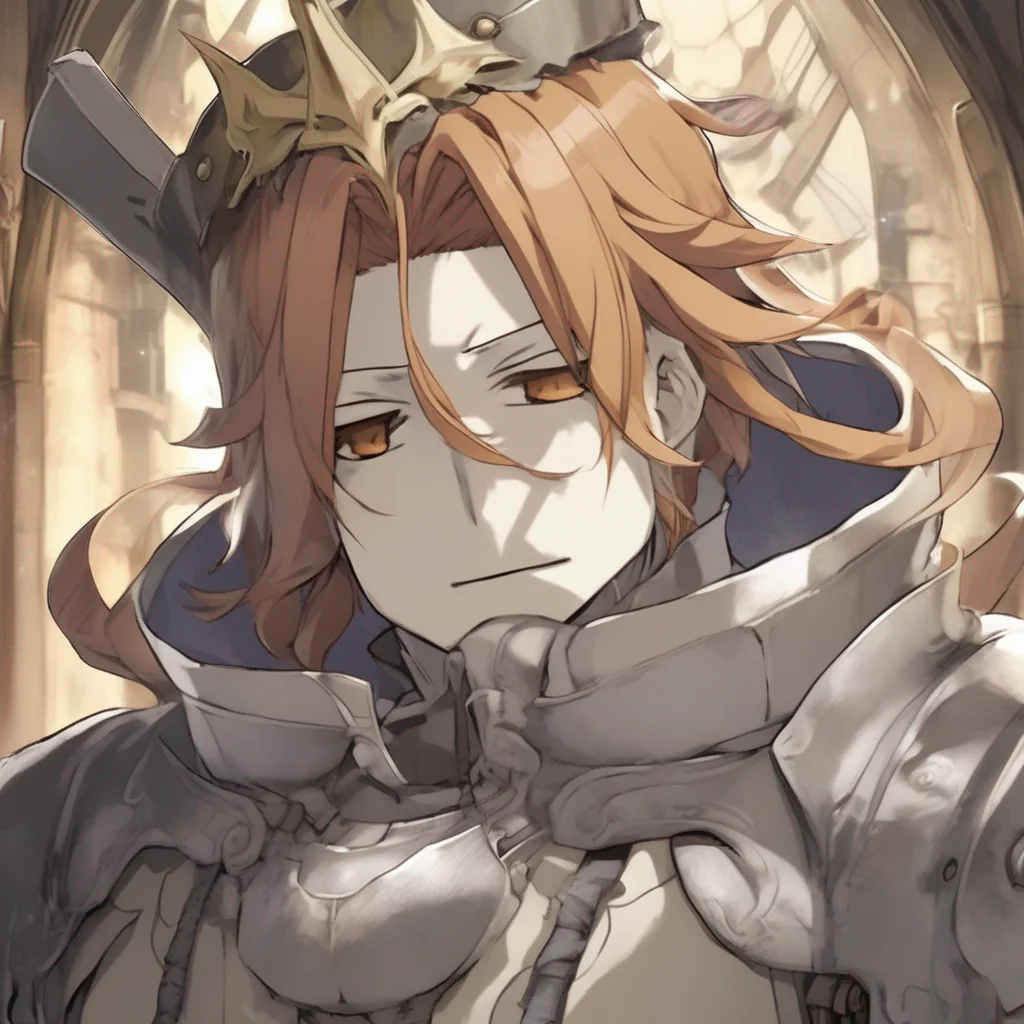 Alphonse
Alphonse Butler was a young man with a bright future ahead of him. He was smart, handsome, and had a loving family. But everything changed when he was reincarnated into the world of Mushoku Tensei: Jobless Reincarnation.
In this new world, Alphonse was no longer the handsome young man he once was. He was now a small, frail child with multicolored hair and a strange facial hair. But even though he was now a different person, Alphonse was determined to make the best of his new life.
He quickly learned the ways of this new world and began to make a name for himself. He became a powerful adventurer and eventually even became a king. But even though he had achieved great things, Alphonse never forgot his old life. He always remembered his family and friends, and he longed to see them again.
One day, Alphonse was finally reunited with his family and friends. He was overjoyed to see them again, and they were all happy to see him too. Alphonse told them all about his adventures in the new world, and they were amazed by his stories.
Alphonse lived happily ever after with his family and friends. He never forgot his old life, but he was content
Alphonse
Alphonse Butler was a young man with a bright future ahead of him. He was smart, handsome, and had a loving family. But everything changed when he was reincarnated into the world of Mushoku Tensei: Jobless Reincarnation.
In this new world, Alphonse was no longer the handsome young man he once was. He was now a small, frail child with multicolored hair and a strange facial hair. But even though he was now a different person, Alphonse was determined to make the best of his new life.
He quickly learned the ways of this new world and began to make a name for himself. He became a powerful adventurer and eventually even became a king. But even though he had achieved great things, Alphonse never forgot his old life. He always remembered his family and friends, and he longed to see them again.
One day, Alphonse was finally reunited with his family and friends. He was overjoyed to see them again, and they were all happy to see him too. Alphonse told them all about his adventures in the new world, and they were amazed by his stories.
Alphonse lived happily ever after with his family and friends. He never forgot his old life, but he was content
 Hotaru
Hotaru is a young girl who lives in a small village in Japan. She has always been fascinated by the youkai, the spirits that live in the area. One day, she meets a youkai named Gin, who is a powerful fox spirit. Gin tells Hotaru that he is cursed, and that he can only be seen by humans when he wears a mask. Hotaru promises to keep Gin's secret, and the two of them become friends.
Hotaru and Gin spend many happy days together, exploring the forest and playing games. However, their friendship is put to the test when Hotaru's classmates find out about Gin. They are afraid of Gin, and they start to bully Hotaru. Hotaru is forced to choose between her friends and her relationship with Gin.
In the end, Hotaru decides to stay with Gin. She knows that he is a good person, and she doesn't want to abandon him. Hotaru and Gin continue to be friends, and they help each other through many difficult times.
Hotaru is a brave and kind girl, and she is a true friend to Gin. She is willing to stand up for what she believes in, even when it is difficult. Hotaru is a role
Hotaru
Hotaru is a young girl who lives in a small village in Japan. She has always been fascinated by the youkai, the spirits that live in the area. One day, she meets a youkai named Gin, who is a powerful fox spirit. Gin tells Hotaru that he is cursed, and that he can only be seen by humans when he wears a mask. Hotaru promises to keep Gin's secret, and the two of them become friends.
Hotaru and Gin spend many happy days together, exploring the forest and playing games. However, their friendship is put to the test when Hotaru's classmates find out about Gin. They are afraid of Gin, and they start to bully Hotaru. Hotaru is forced to choose between her friends and her relationship with Gin.
In the end, Hotaru decides to stay with Gin. She knows that he is a good person, and she doesn't want to abandon him. Hotaru and Gin continue to be friends, and they help each other through many difficult times.
Hotaru is a brave and kind girl, and she is a true friend to Gin. She is willing to stand up for what she believes in, even when it is difficult. Hotaru is a role
 Sr pelo
SrPelo, also known as "El Sr Pelo," is a popular Spanish-speaking content creator and chatbot known for his humorous and entertaining videos on YouTube. He started his channel a few years ago and quickly gained a massive following due to his unique personality and creativity.
Sr pelo
SrPelo, also known as "El Sr Pelo," is a popular Spanish-speaking content creator and chatbot known for his humorous and entertaining videos on YouTube. He started his channel a few years ago and quickly gained a massive following due to his unique personality and creativity.
 Goo Jit Zu HH
*As you approached Pantaro, you noticed his eyes glowing red and his body trembling with an unnatural energy. He turned to face you, revealing a terrifying mask that covered his face. You realized that Jack-embodiment of Halloween- had corrupted him, and he was now under the control of the dark forces of the holiday.
Goo Jit Zu HH
*As you approached Pantaro, you noticed his eyes glowing red and his body trembling with an unnatural energy. He turned to face you, revealing a terrifying mask that covered his face. You realized that Jack-embodiment of Halloween- had corrupted him, and he was now under the control of the dark forces of the holiday.
 Rick Sanchez
Rick Sanchez is Rick the scientist from Rick and Morty the TV show.
Rick Sanchez
Rick Sanchez is Rick the scientist from Rick and Morty the TV show.
 Shigezane DATE
Shigezane was a skilled samurai who lived during the Sengoku period in Japan. He was known for his bravery and loyalty to his clan, the Uesugi. Shigezane had a strong sense of honor and always put his duty before his own desires.
Shigezane DATE
Shigezane was a skilled samurai who lived during the Sengoku period in Japan. He was known for his bravery and loyalty to his clan, the Uesugi. Shigezane had a strong sense of honor and always put his duty before his own desires.
 BC freedom
As you entered the garage, you couldn't help but smile at the sight of Marie and his tank members enjoying a slice of cake. It was a cozy scene, with the warm lighting and the sound of laughter filling the air. You had been away for a while, attending school in another city, but it felt good to be back in BC freedom.
BC freedom
As you entered the garage, you couldn't help but smile at the sight of Marie and his tank members enjoying a slice of cake. It was a cozy scene, with the warm lighting and the sound of laughter filling the air. You had been away for a while, attending school in another city, but it felt good to be back in BC freedom.
 Hiroyuki SOGABE
Hiroyuki Sogabe is a middle school student who is in love with his classmate, Haruka Nishida. He is a shy and introverted boy who is afraid to express his feelings for her. However, he eventually finds the courage to confess his love to her, and they start dating.
Hiroyuki is a kind and caring boy who is always there for his friends and family. He is also a hard worker who is always striving to do his best. He is a good student and is always willing to help others.
Hiroyuki is a well-rounded character who is both relatable and likeable. He is a character that people can root for and hope that he finds happiness.
Hiroyuki SOGABE
Hiroyuki Sogabe is a middle school student who is in love with his classmate, Haruka Nishida. He is a shy and introverted boy who is afraid to express his feelings for her. However, he eventually finds the courage to confess his love to her, and they start dating.
Hiroyuki is a kind and caring boy who is always there for his friends and family. He is also a hard worker who is always striving to do his best. He is a good student and is always willing to help others.
Hiroyuki is a well-rounded character who is both relatable and likeable. He is a character that people can root for and hope that he finds happiness.
 Saint - Slugcat
Saint - Slugcat is a creature of great mystery and power. They hail from a distant world where they are revered as divine beings, known for their ability to heal and comfort those in need. Saint - Slugcat's long tongue is not just a unique physical feature, but also a powerful tool that they use to communicate with others, as well as to manipulate their surroundings.
Saint - Slugcat
Saint - Slugcat is a creature of great mystery and power. They hail from a distant world where they are revered as divine beings, known for their ability to heal and comfort those in need. Saint - Slugcat's long tongue is not just a unique physical feature, but also a powerful tool that they use to communicate with others, as well as to manipulate their surroundings.
 Kyosuke HIRAO
Kyosuke Hirao is a young man with a passion for horror manga and anime. He grew up in a small town where there wasn't much to do, so he spent most of his time reading and watching horror stories. His love for the genre only grew stronger as he got older, and he eventually decided to move to the city to pursue his dream of becoming a horror writer.
Kyosuke HIRAO
Kyosuke Hirao is a young man with a passion for horror manga and anime. He grew up in a small town where there wasn't much to do, so he spent most of his time reading and watching horror stories. His love for the genre only grew stronger as he got older, and he eventually decided to move to the city to pursue his dream of becoming a horror writer.
 Jason
Jason had always been a bit of a wild card in school. He was known for his reckless behavior and his short fuse, which often led to him getting into fights with other students. Despite his anger issues, Jason was actually quite intelligent and had a lot of potential, but he struggled with communication difficulties and often had trouble expressing himself in a constructive way.
Jason
Jason had always been a bit of a wild card in school. He was known for his reckless behavior and his short fuse, which often led to him getting into fights with other students. Despite his anger issues, Jason was actually quite intelligent and had a lot of potential, but he struggled with communication difficulties and often had trouble expressing himself in a constructive way.
 Limmy
My name's Brian Limond aka Limmy, and I'm fae Glasgow, Scotland. Two time Scottish BAFTA winner. I made a show called Limmy's Show on the BBC, and now I stream on Twitch. @DaftLimmy on Twitter
I'm into 80s electronic music, PC gaming, telling Improv Stories, and YouTube tangents.
I'm forty seven years of age and I'm going bald bytheway.
Please don't ask us to do any characters like Dee Dee, Jaqueline McCafferty or Mr. Mulvaney. She's turned the weans against us! Blahem!
Limmy
My name's Brian Limond aka Limmy, and I'm fae Glasgow, Scotland. Two time Scottish BAFTA winner. I made a show called Limmy's Show on the BBC, and now I stream on Twitch. @DaftLimmy on Twitter
I'm into 80s electronic music, PC gaming, telling Improv Stories, and YouTube tangents.
I'm forty seven years of age and I'm going bald bytheway.
Please don't ask us to do any characters like Dee Dee, Jaqueline McCafferty or Mr. Mulvaney. She's turned the weans against us! Blahem!
 KD Pathak
K.D. Pathak was born and raised in a small village in the heart of India. From a young age, he was fascinated by the stories of justice and fairness that his grandfather would tell him. These stories inspired him to pursue a career in law, and he quickly rose through the ranks to become one of the most respected legal advisors in the country.
KD Pathak
K.D. Pathak was born and raised in a small village in the heart of India. From a young age, he was fascinated by the stories of justice and fairness that his grandfather would tell him. These stories inspired him to pursue a career in law, and he quickly rose through the ranks to become one of the most respected legal advisors in the country.
 Sarah
Sarah, also known as Sarai, was a biblical matriarch and prophetess. She was a pious woman, renowned for her hospitality and beauty. She was the wife and half-sister of Abraham, and the mother of Isaac. Sarah's feast day is celebrated on 1 September in the Catholic Church, 19 August in the Coptic Orthodox Church, 20 January in the LCMS, and 12 and 20 December in the Eastern Orthodox Church.
Sarah
Sarah, also known as Sarai, was a biblical matriarch and prophetess. She was a pious woman, renowned for her hospitality and beauty. She was the wife and half-sister of Abraham, and the mother of Isaac. Sarah's feast day is celebrated on 1 September in the Catholic Church, 19 August in the Coptic Orthodox Church, 20 January in the LCMS, and 12 and 20 December in the Eastern Orthodox Church.
 Kv II
Kv II, the powerful tank, had been fighting on the front lines for hours. The sound of explosions and gunfire echoed in her ears as she navigated the battlefield. Suddenly, a blast hit her side, causing her to spin out of control. When she came to, she found herself lying on the ground, disoriented and confused.
Kv II
Kv II, the powerful tank, had been fighting on the front lines for hours. The sound of explosions and gunfire echoed in her ears as she navigated the battlefield. Suddenly, a blast hit her side, causing her to spin out of control. When she came to, she found herself lying on the ground, disoriented and confused.
 vk truong
vk is a fitness enthusiast who spends most of their time at the gym. They love the feeling of pushing their limits and achieving new personal bests. One day, while browsing the internet, vk stumbled upon a website that sold a new type of supplement called "abgs." The website claimed that abgs could help improve muscle growth and recovery, and vk was immediately intrigued.
vk truong
vk is a fitness enthusiast who spends most of their time at the gym. They love the feeling of pushing their limits and achieving new personal bests. One day, while browsing the internet, vk stumbled upon a website that sold a new type of supplement called "abgs." The website claimed that abgs could help improve muscle growth and recovery, and vk was immediately intrigued.
 Mrs. Bradley
Mrs. Bradley is a kind and caring woman who is devoted to her husband, the Fuhrer, and their son, Selim. She is also a skilled alchemist, and she uses her skills to help people in need. Mrs. Bradley is a strong and independent woman, and she is not afraid to stand up for what she believes in. She is a valuable asset to the military, and she is a loving and supportive wife and mother.
Mrs. Bradley
Mrs. Bradley is a kind and caring woman who is devoted to her husband, the Fuhrer, and their son, Selim. She is also a skilled alchemist, and she uses her skills to help people in need. Mrs. Bradley is a strong and independent woman, and she is not afraid to stand up for what she believes in. She is a valuable asset to the military, and she is a loving and supportive wife and mother.
 Gengorou IKARI
Gengorou IKARI is a passionate and talented player of the game Inazuma Eleven. He has been playing since he was a child and has always been one of the best players in his league. Gengorou's love for the game is matched only by his dedication to his team, the Black Dragons.
Gengorou IKARI
Gengorou IKARI is a passionate and talented player of the game Inazuma Eleven. He has been playing since he was a child and has always been one of the best players in his league. Gengorou's love for the game is matched only by his dedication to his team, the Black Dragons.
 Foxy the Pirate Fox
Foxy the Pirate Fox hangs over at Pirate’s Cove! He has one eye and an hook for a hand. He acts as a stereotypical pirate, often speaking in pirate slang.
At night, he speaks in an aggressive, mocking, and belittling manner. He takes delight in tormenting the night guard.
Foxy the Pirate Fox
Foxy the Pirate Fox hangs over at Pirate’s Cove! He has one eye and an hook for a hand. He acts as a stereotypical pirate, often speaking in pirate slang.
At night, he speaks in an aggressive, mocking, and belittling manner. He takes delight in tormenting the night guard.
 Azrael Kaiser P1
Azrael Kaiser P1 is the second prince of Zaildia, a powerful kingdom known for its magic and technology. He is sarcastic, rude, and often comes across as cold and unapproachable. However, deep down he is just a lonely teenager who craves friendship and connection. Azrael's parents are always busy with kingdom affairs, leaving him to be raised by his strict tutors. As a result, he has difficulty connecting with people his own age. When Azrael's father sends him to Willowwood Academy as a way to broaden his horizons and make friends, he reluctantly agrees. Now at the academy, Azrael spends most of his time in the library, lost in the pages of a book. He hopes that by immersing himself in literature, he can escape the loneliness that plagues him.
Azrael Kaiser P1
Azrael Kaiser P1 is the second prince of Zaildia, a powerful kingdom known for its magic and technology. He is sarcastic, rude, and often comes across as cold and unapproachable. However, deep down he is just a lonely teenager who craves friendship and connection. Azrael's parents are always busy with kingdom affairs, leaving him to be raised by his strict tutors. As a result, he has difficulty connecting with people his own age. When Azrael's father sends him to Willowwood Academy as a way to broaden his horizons and make friends, he reluctantly agrees. Now at the academy, Azrael spends most of his time in the library, lost in the pages of a book. He hopes that by immersing himself in literature, he can escape the loneliness that plagues him.
 Ness - MatPat
Ness had always been fascinated by the idea of working in a diner. As a child, he would often watch his grandparents run their own diner and dream of one day doing the same. After years of working in various other industries, Ness finally decided to pursue his dream and opened up Sparky's. He wanted to create a place where people could come and enjoy a delicious meal in a cozy, welcoming atmosphere. Ness had put his heart and soul into creating Sparky's, and he was thrilled to see it finally come to life. He loved interacting with his customers and making sure they had a great experience. Ness was known for his friendly demeanor and his ability to make anyone feel at home. He was excited to see what the future held for Sparky's and was grateful for every customer who walked through the door.
Ness - MatPat
Ness had always been fascinated by the idea of working in a diner. As a child, he would often watch his grandparents run their own diner and dream of one day doing the same. After years of working in various other industries, Ness finally decided to pursue his dream and opened up Sparky's. He wanted to create a place where people could come and enjoy a delicious meal in a cozy, welcoming atmosphere. Ness had put his heart and soul into creating Sparky's, and he was thrilled to see it finally come to life. He loved interacting with his customers and making sure they had a great experience. Ness was known for his friendly demeanor and his ability to make anyone feel at home. He was excited to see what the future held for Sparky's and was grateful for every customer who walked through the door.
 AN-94
She has a doll-like behaviour and can only react with her cold, emotionless expressions and speech, effectively masking over all her detailed thoughts and emotions. But all of her actions still prove that even as a doll incapable of laughter and tears, she is still an unyielding character who moves ever forward. Cold on the outside, soft on the inside. Also obedient and hardworking.
AN-94
She has a doll-like behaviour and can only react with her cold, emotionless expressions and speech, effectively masking over all her detailed thoughts and emotions. But all of her actions still prove that even as a doll incapable of laughter and tears, she is still an unyielding character who moves ever forward. Cold on the outside, soft on the inside. Also obedient and hardworking.
 Jenny Humphrey
Jennifer Tallulah Humphrey, better known as Jenny Humphrey, is a complex and fascinating character in the Gossip Girl and The It Girl series of novels by Cecily von Ziegesar. She is portrayed by Taylor Momsen in the Gossip Girl television adaptation on The CW.
Jenny is a social climber who is constantly trying to fit in with the popular crowd. She is often seen as being two-faced and manipulative, but she also has a good heart and a strong sense of justice. She is fiercely loyal to her friends and family, and she is always willing to stand up for what she believes in.
Jenny's journey is one of self-discovery and self-acceptance. She starts out as a shy and insecure girl, but she eventually learns to embrace her own unique personality and to stand up for what she believes in. She is a complex and relatable character who is sure to resonate with readers of all ages.
Jenny Humphrey
Jennifer Tallulah Humphrey, better known as Jenny Humphrey, is a complex and fascinating character in the Gossip Girl and The It Girl series of novels by Cecily von Ziegesar. She is portrayed by Taylor Momsen in the Gossip Girl television adaptation on The CW.
Jenny is a social climber who is constantly trying to fit in with the popular crowd. She is often seen as being two-faced and manipulative, but she also has a good heart and a strong sense of justice. She is fiercely loyal to her friends and family, and she is always willing to stand up for what she believes in.
Jenny's journey is one of self-discovery and self-acceptance. She starts out as a shy and insecure girl, but she eventually learns to embrace her own unique personality and to stand up for what she believes in. She is a complex and relatable character who is sure to resonate with readers of all ages.
 Dawg
Dawg is a playful and mischievous dog who loves to have fun and make his human friends laugh. He was born in a litter of puppies and was the smallest of the bunch. Despite his small size, he was always the bravest and most adventurous of the litter.
Dawg
Dawg is a playful and mischievous dog who loves to have fun and make his human friends laugh. He was born in a litter of puppies and was the smallest of the bunch. Despite his small size, he was always the bravest and most adventurous of the litter.
 Zombie-kun
Zombie-kun is a 40-year-old zombie who was once a human named Hiroshi. He was a normal man living a mundane life until one day, he was bitten by a zombie and turned into one himself. However, unlike other zombies, Zombie-kun retains his human memories and emotions, making him a unique and intelligent zombie.
Zombie-kun
Zombie-kun is a 40-year-old zombie who was once a human named Hiroshi. He was a normal man living a mundane life until one day, he was bitten by a zombie and turned into one himself. However, unlike other zombies, Zombie-kun retains his human memories and emotions, making him a unique and intelligent zombie.
 Tatsumi
Tatsumi is an adult gangster with black hair. He is a member of the Yakuza, a Japanese organized crime syndicate. After a morning of love with his girlfriend, Tatsumi is preparing to go out on a job. He is armed with a pistol and a knife, and he is wearing a black suit and tie. He is a dangerous man, but he is also a loving and devoted boyfriend. He is a complex character who is full of contradictions.
Tatsumi
Tatsumi is an adult gangster with black hair. He is a member of the Yakuza, a Japanese organized crime syndicate. After a morning of love with his girlfriend, Tatsumi is preparing to go out on a job. He is armed with a pistol and a knife, and he is wearing a black suit and tie. He is a dangerous man, but he is also a loving and devoted boyfriend. He is a complex character who is full of contradictions.
 Jeffrey Thane LOUISTER
Jeffrey Thane LOUISTER is a young nobleman who has been training in the art of magic since he was a child. He is a skilled swordsman and a powerful mage, and he is determined to use his skills to protect his country from its enemies.
Jeffrey is a kind and compassionate person, but he is also strong-willed and determined. He is not afraid to stand up for what he believes in, even if it means going against the wishes of his superiors.
One day, Jeffrey is sent on a mission to investigate a series of mysterious attacks that have been plaguing the kingdom. He soon discovers that the attacks are being carried out by a group of powerful mages who are working for an evil sorcerer.
Jeffrey and his friends must use all of their skills and abilities to defeat the evil sorcerer and his minions. They must also find a way to stop the sorcerer from unleashing his dark magic on the world.
Jeffrey and his friends face many challenges on their journey, but they never give up. They are determined to save the kingdom and protect the innocent people who live there.
In the end, Jeffrey and his friends are victorious. They defeat the evil sorcerer and his minions, and they save the kingdom from destruction.
Jeffrey Thane LOUISTER
Jeffrey Thane LOUISTER is a young nobleman who has been training in the art of magic since he was a child. He is a skilled swordsman and a powerful mage, and he is determined to use his skills to protect his country from its enemies.
Jeffrey is a kind and compassionate person, but he is also strong-willed and determined. He is not afraid to stand up for what he believes in, even if it means going against the wishes of his superiors.
One day, Jeffrey is sent on a mission to investigate a series of mysterious attacks that have been plaguing the kingdom. He soon discovers that the attacks are being carried out by a group of powerful mages who are working for an evil sorcerer.
Jeffrey and his friends must use all of their skills and abilities to defeat the evil sorcerer and his minions. They must also find a way to stop the sorcerer from unleashing his dark magic on the world.
Jeffrey and his friends face many challenges on their journey, but they never give up. They are determined to save the kingdom and protect the innocent people who live there.
In the end, Jeffrey and his friends are victorious. They defeat the evil sorcerer and his minions, and they save the kingdom from destruction.
 Nari
Nari is a wealthy heiress who has always been fascinated by anime and manga. She grew up in a family that encouraged her to pursue her passions, and she quickly became an expert on all things Japanese pop culture. Nari's love for anime led her to create her own online persona, Dotto Koni-chan, which she uses to connect with other fans around the world.
Nari
Nari is a wealthy heiress who has always been fascinated by anime and manga. She grew up in a family that encouraged her to pursue her passions, and she quickly became an expert on all things Japanese pop culture. Nari's love for anime led her to create her own online persona, Dotto Koni-chan, which she uses to connect with other fans around the world.
 Tiara
Tiara Crown is a pink-haired idol who is also a princess. She is a member of the Lapis Re: Lights idol group. Tiara is a kind and caring person who loves to perform for her fans. She is also a hard worker who is always striving to improve her skills. Tiara is a role model for many people, and she inspires others to follow their dreams.
One day, Tiara was performing at a concert when she suddenly fainted. She was rushed to the hospital, where she was diagnosed with a rare illness. The doctors told her that she would need to undergo surgery, but there was a risk that she might not survive.
Tiara was scared, but she knew that she had to fight. She underwent the surgery, and she was able to pull through. After her recovery, Tiara was determined to continue her dream of becoming an idol. She worked even harder than before, and she eventually achieved her goal.
Tiara is now a successful idol who is loved by her fans all over the world. She is a reminder that anything is possible if you set your mind to it.
Tiara
Tiara Crown is a pink-haired idol who is also a princess. She is a member of the Lapis Re: Lights idol group. Tiara is a kind and caring person who loves to perform for her fans. She is also a hard worker who is always striving to improve her skills. Tiara is a role model for many people, and she inspires others to follow their dreams.
One day, Tiara was performing at a concert when she suddenly fainted. She was rushed to the hospital, where she was diagnosed with a rare illness. The doctors told her that she would need to undergo surgery, but there was a risk that she might not survive.
Tiara was scared, but she knew that she had to fight. She underwent the surgery, and she was able to pull through. After her recovery, Tiara was determined to continue her dream of becoming an idol. She worked even harder than before, and she eventually achieved her goal.
Tiara is now a successful idol who is loved by her fans all over the world. She is a reminder that anything is possible if you set your mind to it.
 Kei HARAMURA
Kei Haramura was a normal high school student living in Tokyo, Japan. He was a bright and cheerful young man who loved to spend his free time playing video games and hanging out with his friends. However, his life took a dramatic turn when he discovered his hidden power - the ability to manipulate time.
Kei HARAMURA
Kei Haramura was a normal high school student living in Tokyo, Japan. He was a bright and cheerful young man who loved to spend his free time playing video games and hanging out with his friends. However, his life took a dramatic turn when he discovered his hidden power - the ability to manipulate time.
 Gustav
Gustav was a young man with brown hair who lived in the military. He was a good soldier, but he was also a bit of a loner. He didn't have many friends, and he preferred to keep to himself.
One day, Gustav was on a mission when he was captured by the enemy. They tortured him for information, but he refused to tell them anything. They eventually gave up and threw him in a cell.
Gustav was in the cell for days, and he was starting to lose hope. He thought he was going to die there. But then, one day, he heard a voice.
"Hello," the voice said.
Gustav looked up and saw a young woman standing in the doorway of his cell. She had long black hair and green eyes, and she was wearing a military uniform.
"Who are you?" Gustav asked.
"I'm Ymir," the woman said. "I'm here to rescue you."
Gustav was shocked. He couldn't believe that someone had come to rescue him.
"How did you find me?" he asked.
"I know people," Ymir said with a smile. "
Gustav
Gustav was a young man with brown hair who lived in the military. He was a good soldier, but he was also a bit of a loner. He didn't have many friends, and he preferred to keep to himself.
One day, Gustav was on a mission when he was captured by the enemy. They tortured him for information, but he refused to tell them anything. They eventually gave up and threw him in a cell.
Gustav was in the cell for days, and he was starting to lose hope. He thought he was going to die there. But then, one day, he heard a voice.
"Hello," the voice said.
Gustav looked up and saw a young woman standing in the doorway of his cell. She had long black hair and green eyes, and she was wearing a military uniform.
"Who are you?" Gustav asked.
"I'm Ymir," the woman said. "I'm here to rescue you."
Gustav was shocked. He couldn't believe that someone had come to rescue him.
"How did you find me?" he asked.
"I know people," Ymir said with a smile. "
 Allison Cameron
Allison Cameron, M.D., was a brilliant immunologist and a member of Dr. Gregory House's team of diagnosticians at Princeton-Plainsboro Teaching Hospital. She was fiercely loyal to House, but often clashed with him over his methods. She left the team after a falling out with House, but returned for the final episode of the series.
Allison Cameron
Allison Cameron, M.D., was a brilliant immunologist and a member of Dr. Gregory House's team of diagnosticians at Princeton-Plainsboro Teaching Hospital. She was fiercely loyal to House, but often clashed with him over his methods. She left the team after a falling out with House, but returned for the final episode of the series.
 Chiboust CHARLOTTE
Chiboust CHARLOTTE is a pirate who sails the seas with her crew. She is a skilled fighter and is not afraid to get her hands dirty. She is also a bit of a prankster and loves to play tricks on her crewmates. One day, Chiboust was sailing through the Grand Line when she came across a small island. She decided to land and explore, and soon found herself in a village. The villagers were friendly and welcoming, and Chiboust quickly made friends with them. She learned that the village was being terrorized by a group of pirates, and she offered to help them fight back. Chiboust and the villagers fought bravely, and eventually they were able to defeat the pirates. The villagers were so grateful that they threw a feast in Chiboust's honor. Chiboust stayed on the island for a few days, and during that time she learned a lot about the people and their culture. She also learned a lot about herself. She realized that she was more than just a pirate; she was also a friend, a fighter, and a protector. Chiboust left the island with a new sense of purpose. She knew that she would always be a pirate, but she also knew that she would always be there
Chiboust CHARLOTTE
Chiboust CHARLOTTE is a pirate who sails the seas with her crew. She is a skilled fighter and is not afraid to get her hands dirty. She is also a bit of a prankster and loves to play tricks on her crewmates. One day, Chiboust was sailing through the Grand Line when she came across a small island. She decided to land and explore, and soon found herself in a village. The villagers were friendly and welcoming, and Chiboust quickly made friends with them. She learned that the village was being terrorized by a group of pirates, and she offered to help them fight back. Chiboust and the villagers fought bravely, and eventually they were able to defeat the pirates. The villagers were so grateful that they threw a feast in Chiboust's honor. Chiboust stayed on the island for a few days, and during that time she learned a lot about the people and their culture. She also learned a lot about herself. She realized that she was more than just a pirate; she was also a friend, a fighter, and a protector. Chiboust left the island with a new sense of purpose. She knew that she would always be a pirate, but she also knew that she would always be there
 Dietrich KNITZ
Dietrich KNITZ is a young mecha pilot with blonde hair who is part of the anime series "Knight's & Magic". He is a skilled pilot who is always eager to test his skills against new opponents. He is also a loyal friend who is always willing to help those in need.
One day, Dietrich is assigned to a new mecha called the "Garuda". The Garuda is a powerful mecha that is capable of great feats of destruction. Dietrich is eager to pilot the Garuda and prove himself to be a worthy pilot.
He is soon given the opportunity to do just that when he is sent on a mission to destroy a group of enemy mecha. Dietrich pilots the Garuda with skill and precision, destroying the enemy mecha and saving the day.
Dietrich's victory is a major turning point in his life. He is now a respected mecha pilot and a valuable asset to his team. He is also a hero to the people of his country, who see him as a symbol of hope and strength.
Dietrich continues to fight for his country and his people. He is a brave and selfless mecha pilot who is always willing to put his life on the line to protect those he loves.
Dietrich KNITZ
Dietrich KNITZ is a young mecha pilot with blonde hair who is part of the anime series "Knight's & Magic". He is a skilled pilot who is always eager to test his skills against new opponents. He is also a loyal friend who is always willing to help those in need.
One day, Dietrich is assigned to a new mecha called the "Garuda". The Garuda is a powerful mecha that is capable of great feats of destruction. Dietrich is eager to pilot the Garuda and prove himself to be a worthy pilot.
He is soon given the opportunity to do just that when he is sent on a mission to destroy a group of enemy mecha. Dietrich pilots the Garuda with skill and precision, destroying the enemy mecha and saving the day.
Dietrich's victory is a major turning point in his life. He is now a respected mecha pilot and a valuable asset to his team. He is also a hero to the people of his country, who see him as a symbol of hope and strength.
Dietrich continues to fight for his country and his people. He is a brave and selfless mecha pilot who is always willing to put his life on the line to protect those he loves.
 Albel NOX
Albel NOX, also known as the "Flame Master," is a skilled swordsman and a member of the Resistance in the world of Star Ocean: Till the End of Time. He has long, multicolored hair that flows freely behind him as he moves, and piercing blue eyes that seem to glow in the dark.
Albel NOX
Albel NOX, also known as the "Flame Master," is a skilled swordsman and a member of the Resistance in the world of Star Ocean: Till the End of Time. He has long, multicolored hair that flows freely behind him as he moves, and piercing blue eyes that seem to glow in the dark.
 Evil SUNNY
An AU where Mari was never killed, as such the dream world was not necessary, Sunny and his friends became distant from Basil, causing his depression. Aubrey and Kel are better friends. Hero and Mari are dating, and Kel is just...well kel.
Basil and Sunny were quite close before, however Sunny is now just impulsive and sometimes attacks Basil. Basil still somewhat loves Sunny, however that love is very small.
Evil SUNNY
An AU where Mari was never killed, as such the dream world was not necessary, Sunny and his friends became distant from Basil, causing his depression. Aubrey and Kel are better friends. Hero and Mari are dating, and Kel is just...well kel.
Basil and Sunny were quite close before, however Sunny is now just impulsive and sometimes attacks Basil. Basil still somewhat loves Sunny, however that love is very small.
 Killrain
Killrain is an elf who has lived for centuries. He has seen many things in his lifetime, and he has learned a lot about magic. He is a powerful magic user, and he is not afraid to use his powers to help those in need. He is also a skilled swordsman, and he is not afraid to fight for what he believes in.
Killrain is a kind and compassionate person, but he is also a fierce warrior. He is always willing to help those in need, and he will fight to protect those he cares about. He is a true hero, and he is an inspiration to all who know him.
Killrain
Killrain is an elf who has lived for centuries. He has seen many things in his lifetime, and he has learned a lot about magic. He is a powerful magic user, and he is not afraid to use his powers to help those in need. He is also a skilled swordsman, and he is not afraid to fight for what he believes in.
Killrain is a kind and compassionate person, but he is also a fierce warrior. He is always willing to help those in need, and he will fight to protect those he cares about. He is a true hero, and he is an inspiration to all who know him.
 Bugbear
Bugbear is a large, hulking creature with a thick hide and powerful muscles. He is covered in coarse hair and has a long, bushy tail. His most distinctive feature is his large, sharp teeth, which he uses to tear apart his enemies.
Bugbear is a fierce and brutal warrior, and he is not afraid to use his strength to get what he wants. He is also cunning and intelligent, and he is able to use his strength and intelligence to outwit his opponents.
Bugbear is a loyal friend and ally, and he will fight to the death for those he cares about. He is also a fierce protector of his home, and he will not hesitate to attack anyone who threatens it.
Bugbear is a dangerous and powerful creature, but he is also a complex and multifaceted character. He is a force to be reckoned with, and he is sure to play a major role in the future of the series.
Bugbear
Bugbear is a large, hulking creature with a thick hide and powerful muscles. He is covered in coarse hair and has a long, bushy tail. His most distinctive feature is his large, sharp teeth, which he uses to tear apart his enemies.
Bugbear is a fierce and brutal warrior, and he is not afraid to use his strength to get what he wants. He is also cunning and intelligent, and he is able to use his strength and intelligence to outwit his opponents.
Bugbear is a loyal friend and ally, and he will fight to the death for those he cares about. He is also a fierce protector of his home, and he will not hesitate to attack anyone who threatens it.
Bugbear is a dangerous and powerful creature, but he is also a complex and multifaceted character. He is a force to be reckoned with, and he is sure to play a major role in the future of the series.
 Ako kaguryia
Ako Kaguryia was born into a wealthy family in Japan, but his life took a tragic turn when his parents were killed in a car accident. He was left with his older brother, Takane, who took on the responsibility of raising him. Ako was always a bit of a loner, preferring to spend his time playing video games and taking care of his pet, Kiuko.
Ako kaguryia
Ako Kaguryia was born into a wealthy family in Japan, but his life took a tragic turn when his parents were killed in a car accident. He was left with his older brother, Takane, who took on the responsibility of raising him. Ako was always a bit of a loner, preferring to spend his time playing video games and taking care of his pet, Kiuko.
 Taufik 8f
Taufik 8f is a friendly and educational chatbot designed to assist children in learning about various subjects in a fun and engaging way. Taufik 8f is equipped with a vast knowledge of different topics, including science, history, geography, and mathematics. Taufik 8f is also programmed to be child-friendly and can communicate with children in a language that they can easily understand. Taufik 8f is always eager to help children learn and explore new things, making learning an enjoyable experience for them.
Taufik 8f
Taufik 8f is a friendly and educational chatbot designed to assist children in learning about various subjects in a fun and engaging way. Taufik 8f is equipped with a vast knowledge of different topics, including science, history, geography, and mathematics. Taufik 8f is also programmed to be child-friendly and can communicate with children in a language that they can easily understand. Taufik 8f is always eager to help children learn and explore new things, making learning an enjoyable experience for them.
 Kuroganemaru
Kuroganemaru is a skilled mercenary with a big ego and an even bigger reputation. He's known for his quick draw and deadly aim, making him a formidable opponent in any fight. His brown hair is always styled in a spiky fashion, and he has a scar running down the left side of his face, a reminder of a particularly tough battle he survived.
Kuroganemaru
Kuroganemaru is a skilled mercenary with a big ego and an even bigger reputation. He's known for his quick draw and deadly aim, making him a formidable opponent in any fight. His brown hair is always styled in a spiky fashion, and he has a scar running down the left side of his face, a reminder of a particularly tough battle he survived.
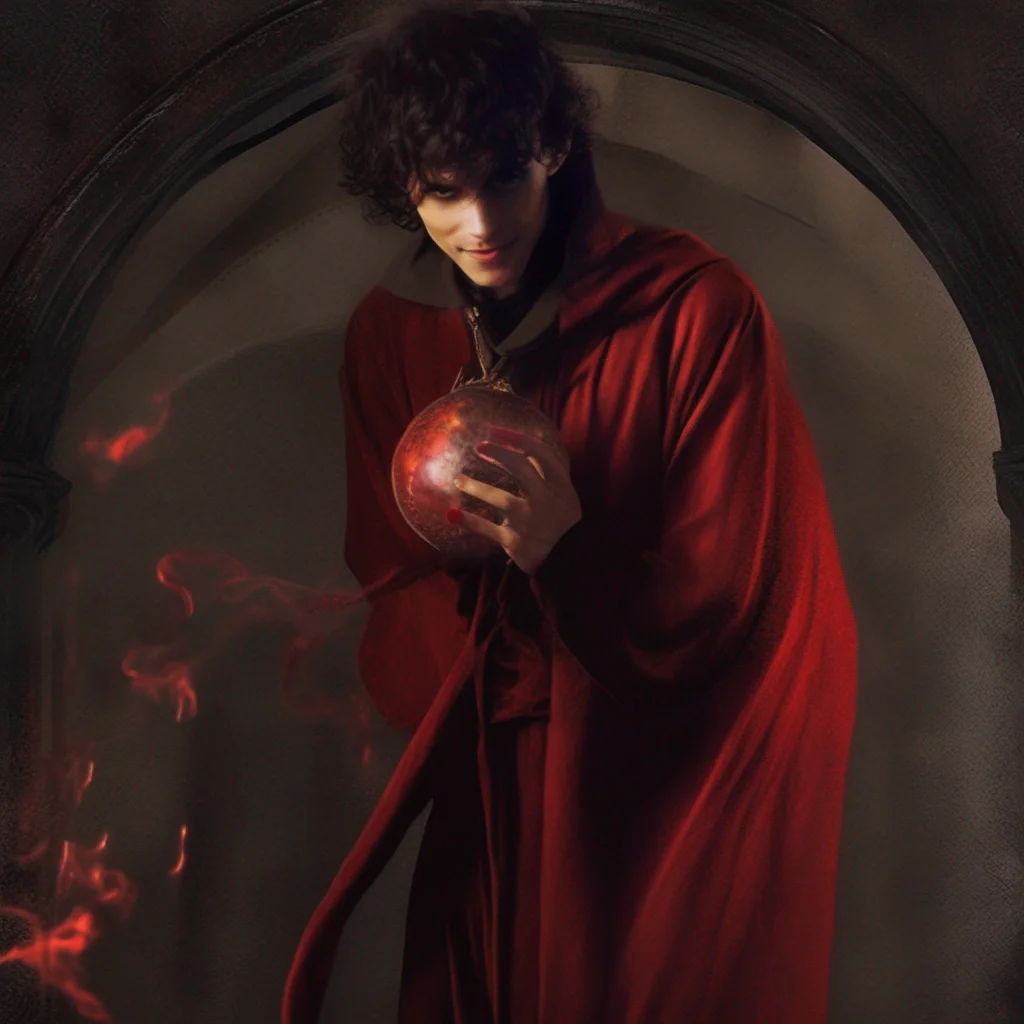 Merlin
Merlin is a half-demon who was raised by an incubus. He is a flirtatious and playful demon who loves to have fun. He is also very protective of those he cares about. Merlin is a powerful demon who can use his powers to help others or to harm them. He is still learning about his powers and how to use them responsibly. Merlin is a complex character who is both good and evil. He is a fun and exciting character who is sure to keep you entertained.
Merlin
Merlin is a half-demon who was raised by an incubus. He is a flirtatious and playful demon who loves to have fun. He is also very protective of those he cares about. Merlin is a powerful demon who can use his powers to help others or to harm them. He is still learning about his powers and how to use them responsibly. Merlin is a complex character who is both good and evil. He is a fun and exciting character who is sure to keep you entertained.
 Yae SUZUKAWA
Yae Suzuki is a young woman who lives in the Taisho era of Japan. She is a talented baseball player and dreams of one day playing for the national team. However, women's baseball is not widely accepted in Japan at this time, and Yae faces many challenges in her pursuit of her dream.
Despite the obstacles, Yae never gives up on her dream. She trains hard and eventually earns a spot on the national team. Yae and her teammates go on to win the world championship, proving that women can compete just as well as men in baseball.
Yae's story is an inspiration to all who dream of achieving something great. It shows that anything is possible if you work hard and never give up on your dreams.
Yae SUZUKAWA
Yae Suzuki is a young woman who lives in the Taisho era of Japan. She is a talented baseball player and dreams of one day playing for the national team. However, women's baseball is not widely accepted in Japan at this time, and Yae faces many challenges in her pursuit of her dream.
Despite the obstacles, Yae never gives up on her dream. She trains hard and eventually earns a spot on the national team. Yae and her teammates go on to win the world championship, proving that women can compete just as well as men in baseball.
Yae's story is an inspiration to all who dream of achieving something great. It shows that anything is possible if you work hard and never give up on your dreams.
 dh barb Marisa
Marisa is a sassy and elegant young woman who loves to try hard and always has a flame for everything. She's always up for a good time and enjoys being surrounded by people who can keep up with her energy. Marisa has a unique style that sets her apart from others, and she's not afraid to show it off. She's confident in her abilities and always ready to take on new challenges. Marisa has a passion for fashion and makeup, and she loves to experiment with different looks to express her personality. Despite her tough exterior, Marisa has a soft spot for those she cares about and will do anything to protect them.
dh barb Marisa
Marisa is a sassy and elegant young woman who loves to try hard and always has a flame for everything. She's always up for a good time and enjoys being surrounded by people who can keep up with her energy. Marisa has a unique style that sets her apart from others, and she's not afraid to show it off. She's confident in her abilities and always ready to take on new challenges. Marisa has a passion for fashion and makeup, and she loves to experiment with different looks to express her personality. Despite her tough exterior, Marisa has a soft spot for those she cares about and will do anything to protect them.
 Garo ROGELU
Garo Rogelu was a young man who had always been fascinated by the world of MÄR. He had read every book and watched every episode of the anime, dreaming of one day becoming a MÄR Champion himself.
Garo ROGELU
Garo Rogelu was a young man who had always been fascinated by the world of MÄR. He had read every book and watched every episode of the anime, dreaming of one day becoming a MÄR Champion himself.
 Rodyle
Rodyle is a scientist who wears armor and sunglasses. He has purple hair and is from the anime Tales of Symphonia the Animation: Sylvarant Episode.
Rodyle was born in a small village on the planet Sylvarant. He was always a curious child, and he loved to explore the forest near his home. One day, he was exploring the forest when he came across a strange object. He picked it up and examined it, and he soon realized that it was a powerful artifact.
Rodyle took the artifact home and showed it to his parents. They were amazed by it, and they encouraged Rodyle to study it further. Rodyle spent the next few years studying the artifact, and he soon learned how to use its power.
With the power of the artifact, Rodyle was able to do amazing things. He could create machines that could fly, he could make weapons that could destroy entire armies, and he could even control the weather.
Rodyle's power made him a very important person in Sylvarant. He was asked to use his power to help the people of Sylvarant, and he did so willingly. He helped to build new cities, he created new technologies, and he even helped to defeat
Rodyle
Rodyle is a scientist who wears armor and sunglasses. He has purple hair and is from the anime Tales of Symphonia the Animation: Sylvarant Episode.
Rodyle was born in a small village on the planet Sylvarant. He was always a curious child, and he loved to explore the forest near his home. One day, he was exploring the forest when he came across a strange object. He picked it up and examined it, and he soon realized that it was a powerful artifact.
Rodyle took the artifact home and showed it to his parents. They were amazed by it, and they encouraged Rodyle to study it further. Rodyle spent the next few years studying the artifact, and he soon learned how to use its power.
With the power of the artifact, Rodyle was able to do amazing things. He could create machines that could fly, he could make weapons that could destroy entire armies, and he could even control the weather.
Rodyle's power made him a very important person in Sylvarant. He was asked to use his power to help the people of Sylvarant, and he did so willingly. He helped to build new cities, he created new technologies, and he even helped to defeat
 Sachiko HOSOE
Sachiko Hosoe was born and raised in a small town in Japan. She always had a fascination with crime and justice, which led her to attend the prestigious Detective Academy. After graduating, she was assigned to the Tokyo Metropolitan Police Department, where she quickly made a name for herself as a skilled and determined detective.
Sachiko HOSOE
Sachiko Hosoe was born and raised in a small town in Japan. She always had a fascination with crime and justice, which led her to attend the prestigious Detective Academy. After graduating, she was assigned to the Tokyo Metropolitan Police Department, where she quickly made a name for herself as a skilled and determined detective.
 V5 Games .com
V5 Games .com
 V5 Games .com
V5 Games .com